2024 Best Online PhD in Biology [Doctorate Guide]
If you’re interested in the sciences of living things, pursuing your PhD in Biology might be a strategic next step on your educational path.
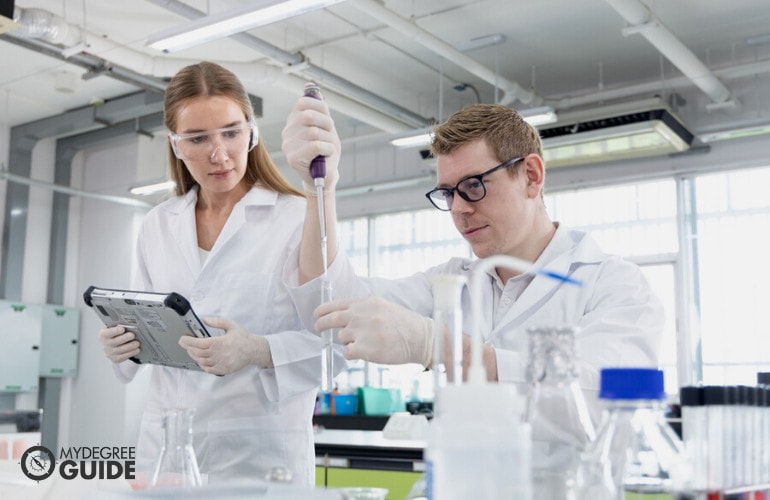
The biological sciences help us learn more about how our world operates, and this fascinating field has many specialties to choose from. Whether you want to focus on the human body or explore the living world around us, there are many options for you to consider.
Editorial Listing ShortCode:
Let’s take a look at how earning a doctorate degree in biology might further your educational and professional goals.

Universities Offering Online Doctorate in Biology Degree Programs
Methodology: The following school list is in alphabetical order. To be included, a college or university must be regionally accredited and offer degree programs online or in a hybrid format.
George Mason University
George Mason University’s PhD in Bioinformatics and Computational Biology program is available 100% online. Students are required to complete 72 total credits. Class options include Systems Biology, Biological Data Analysis, Biological Sequence and Genome Analysis, Research Ethics, Numerical Methods for Bioinformatics, and more. Courses are delivered synchronously.
George Mason University is accredited by the Southern Association of Colleges and Schools Commission on Colleges.
Nova Southeastern University
Nova Southeastern University offers a PhD in Marine Biology and Oceanography. Applications are accepted on a rolling basis for fall, spring, and summer terms. The degree can be earned on campus or online. Students are usually able to finish within 5 years. Graduates have gone on to careers in the government and academia.
Nova Southeastern University is accredited by the Southern Association of Colleges and Schools Commission on Colleges.
Texas A&M University
Texas A&M University offers a Doctor of Philosophy in Biomedical Sciences. The program includes 4 tracks: Physiology and Developmental Biology, Infection, Immunity, and Epidemiology, Diagnostics and Therapeutics, and Biomedical Genomics and Bioinformatics. Each track can be tailored to specific research interests.
Texas A&M University is accredited by the Southern Association of Colleges and Schools Commission on Colleges.
Texas Tech University
Texas Tech University offers a hybrid program for a Doctor of Philosophy in Curriculum and Instruction (Track in STEM) that requires the completion of 63 credit hours. Much of the coursework is completed online, but in the summer, students take on-campus intensive courses. Prospective students must have a master’s degree to apply.
Texas Tech University is accredited by the Southern Association of Colleges and Schools Commission on Colleges.
University of Florida
The University of Florida offers a PhD in Anatomical Science Education. Students must complete at least 90 credit hours to graduate. Coursework includes Medical Human Embryology, Science Curriculum Development, Medical Histology, Medical Cell Biology, Essential Human Anatomy, and more. Students must also successfully defend a dissertation.
The University of Florida is accredited by the Southern Association of Colleges and Schools Commission on Colleges.
PhD in Biology Online Programs
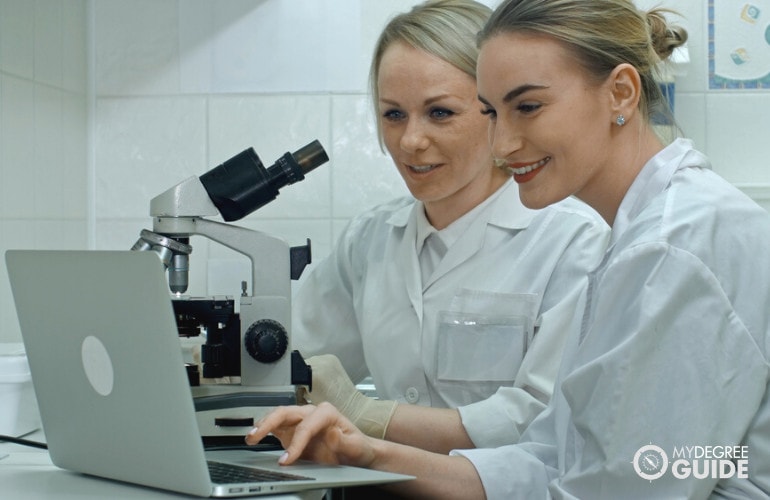
Biology is the study of living things, and there are many specific areas in biology in which doctoral students can concentrate.
Some of these biological concentrations include:
- Cellular and molecular biology
- Ecology and environmental biology
- Evolutionary biology and genomics
- Epidemiology
- Forensic biology
Biological studies can range from the microscopic world of the cell to understanding how our existence can impact our future.
Those who have earned their Ph.D. in Biology are able to examine our world on a very different level to understand the “how” and “why” of life as we know it. Those who earn their doctorate degree in biology may continue their careers in research, analytics, or field work. Many PhD graduates even go on to become educators for the next generation of biology students.
The field of biology is expansive, so you’ll often take a certain number of core classes, electives, and courses that are specific to your concentration. Many schools offer several areas of focus to help you further define your path.
Pursuing a doctorate degree in biology can provide you with an opportunity to hone your research and analytical skills while selecting a focus for your studies and potential career path.
Biology Careers and Salaries
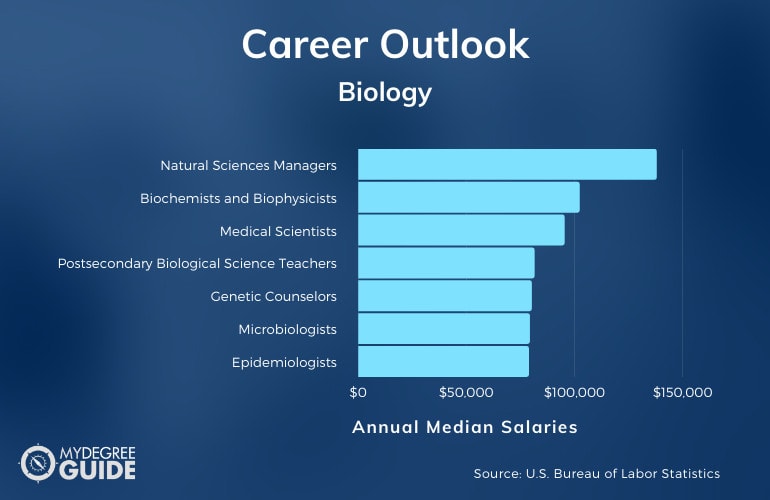
The variety of degree programs in biology can help open the doors to a range of professions in related fields. Your career path will likely depend on your area of concentration, field work, and skill sets, among other factors.
According to the Bureau of Labor Statistics , here are some professions related to the field of biology, along with their median salaries.
| Natural Sciences Managers | $137,900 |
| Biochemists and Biophysicists | $102,270 |
| Medical Scientists | $95,310 |
| Postsecondary Biological Science Teachers | $81,440 |
| Genetic Counselors | $80,150 |
| Microbiologists | $79,260 |
| Epidemiologists | $78,830 |
| Zoologists and Wildlife Biologists | $64,650 |
| Forensic Science Technicians | $61,930 |
| Clinical Laboratory Technologists and Technicians | $57,800 |
Many biology doctoral students focus on scientific research in a variety of specialties. For instance, some may aim to develop cutting-edge medical intervention, while others want to connect with wildlife and our environment on a cellular level.
Students who pursue a PhD in Biology are often encouraged to gain experience in the field as part of their curriculum. This could help you narrow down the field and concentration of your studies and potential career path.
Biology Doctorate Curriculum & Courses
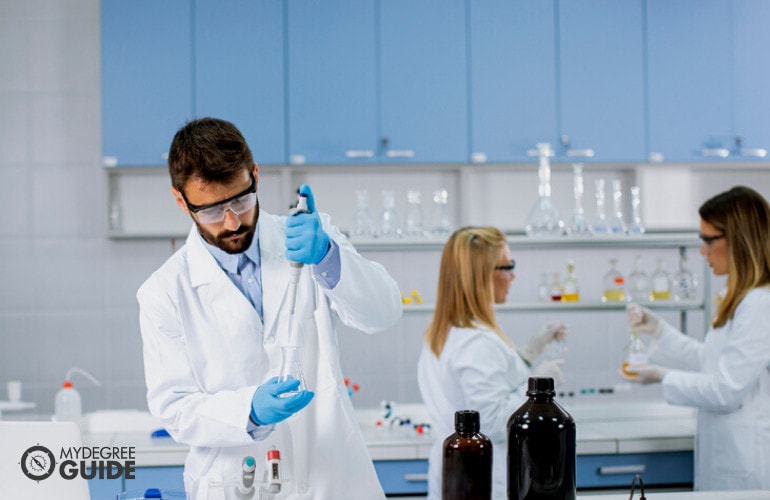
Since there are so many areas of study within a doctorate degree in biology, you’ll often take courses that apply to your specific concentration.
While coursework can vary between PhD programs in biology, here are a few courses you may encounter:
- Evolutionary Ecology : This course allows you to learn more about theories and evidence surrounding the evolutionary process and its impact on various species.
- Understanding Genomics in Medicine : In this course, you’ll get in-depth exposure to the Human Genome Project, and you’ll study how diseases impact us on a genetic level.
- Cell Biology : From macromolecules to microscopy, this course will provide detailed analysis of how cells work.
- Animal Behavior : Animal behavior has a variety of origins, from evolutionary to neurological, and you’ll review evidence for all behavior.
- Biology of Parasites : Parasites and pathogens are common dependent species of living organisms and are the focus of this course.
- Regional Biology : In this course, you’ll examine how environmental factors, such as heat or freezing temperatures, can impact local biology.
- Developmental Genomics : This course examines how genes and molecular interaction impact biological development.
- Analytical Biotechnology : This course combines technology and analytical skills to examine biomolecules and report findings.
- Cell Proliferation : This course studies the processes through which cells divide or multiply.
- Freshwater Biology : In this course, you’ll examine freshwater sources, such as ponds and lakes, to examine the overall ecology and health of biological factors there.
Your courses can also help you develop research skill sets for the dissertation component of your program.
Online PhD in Biology Admissions Requirements

PhD programs in biology can have different admissions requirements. You can visit a school’s website or call their admissions office to verify the specific criteria for their application process.
For many schools, doctoral applicants are asked to provide the following:
- GRE or GMAT scores (only some schools require them)
- Bachelor or masters degree in biology or related field like an online masters in biostatistics
- Official undergraduate and graduate transcripts
- Letters of recommendation
- Statement of intent
As part of the application process, you may also be asked to complete an application, attend interviews with those in the department, and present prior thesis work.
Online Biology PhD Programs Accreditation
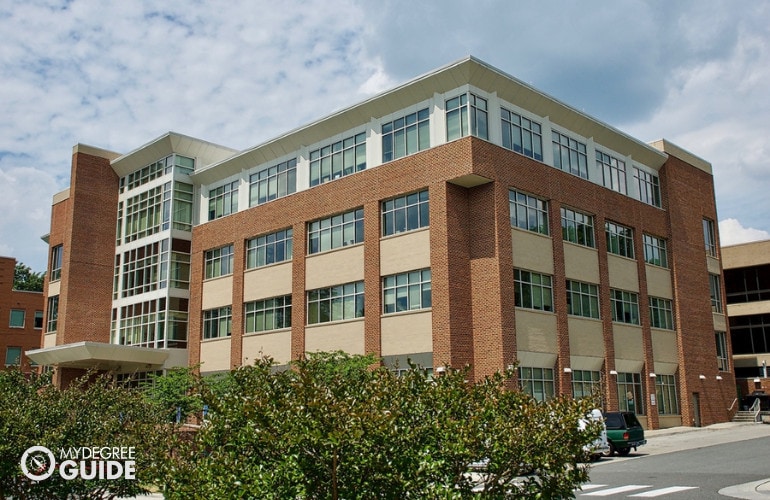
When reviewing various schools that offer a doctorate degree in biology, you may wish to only pay attention to institutions that hold regional accreditation. Programs that have earned accreditation have been examined for their educational excellence. This means the courses and instructors have earned a positive reputation for their impact on students.
Qualification for future professional memberships and licenses may be tied to participation in an accredited program. Additionally, many employers indicate that a degree from an accredited school is necessary for employment. This could also impact the publishing of your studies. To verify a school’s accreditation status, you can visit the website of the Council for Higher Education Accreditation (CHEA) .
Financial Aid and Scholarships

If you’re interested in financial assistance for your doctoral degree, there are various options available for students who qualify.
To see if you’re eligible for government assistance, you can complete the Free Application for Federal Student Aid (FAFSA) online. This federal program provides need-based financial aid to students across the country. Student loans are the most common form of federal aid. Additionally, you may wish to check with your prospective school regarding scholarships or grants available to students who are pursuing biological studies.
There may be opportunities for assistance based on your concentration or prior academic work. Some employers also provide tuition assistance or reimbursement to workers who are pursuing higher education.
What Can You Do with a Doctorate in Biology?

Earning a doctorate degree in biology can help you advance your professional qualifications and skill sets in your chosen area of concentration.
Biological sciences impact much of the world around us. For instance, some graduates choose to go into the field and research various species directly, while others work in a lab, concentrating on genetic development or microbiology. After graduation, some professionals choose to continue their research or pursue a role as an educator and mentor. Others go on to become biochemists, biophysicists, or medical scientists.
Biologists are employed in a variety of sectors, and your chosen doctoral track will impact your qualifications for various career paths.
How Long Does It Take to Get a PhD in Biology?
The length of time it takes to complete a PhD in Biology can depend on several factors, including any field work or dissertation work that is part of the program.
Generally speaking, a doctorate degree in biology takes between 3 years and 5 years to complete with full-time study. This also depends on the number of credit hours required by the program. Part-time enrollment will often extend your time to completion.
A program that does not ask students to complete a dissertation can potentially be completed in 3 years with full-time study.
Is Getting a PhD in Biology Worth It?

Yes, getting a PhD in Biology is worth it for many professionals. Those with a PhD in Biology have unique insight into how our lives are impacted by our own genetics, parasites, environmental factors, and more. This may be why careers in biological fields are on the rise.
Overall, the Bureau of Labor Statistics projects 8% job growth for life, physical, and social science occupations over the next ten years. A PhD can also help you qualify for positions in research and academia. Selecting a career path in biological sciences can allow greater insight into why our world is the way it is.
Earning Your Doctoral Degree in Biology Online

If you have a significant interest in the biological sciences, earning your doctorate degree in biology online can allow you to develop your expertise in the specialty of your choosing.
A PhD program will also enable you to contribute research to the field. Many doctoral students go on to pursue positions in research and academia, while others pursue advanced roles in the field. A number of accredited universities now offer both masters degree in biology online programs as well as doctoral programs online, catering to working professionals.
If you’re ready to get started on the next steps in your education and career, you can check out available biology doctoral programs offered online by accredited schools.

2024 Best Online PhD in Biology Programs [Doctorate Guide]
If you are passionate about studying biological sciences but need a flexible program that is well-suited to your life, you might consider earning an online PhD in Biology.

Online programs allow you to complete work from anywhere with internet access, and biology PhD programs also offer various specializations within biology.
Editorial Listing ShortCode:
Most programs are research focused, allowing you to gain in-depth knowledge and acquire specialized research skills according to your interests. One benefit of an online PhD in Biology is the flexibility in tailoring a program to your needs.
Online PhD in Biology Programs

PhDs can be beneficial for a multitude of careers. Since biology is the study of life, this encompasses many areas for exploration.
Generally, PhD programs in biology are separated into three main subfields:
- Cellular and molecular biology
- Ecology, behavior, and evolution
- Neurobiology
An online PhD in Biology can also help you qualify for teaching or research positions at the university level. Depending on their experience and area of specialty, professionals with a Doctor of Biology may pursue the following career paths:
- University professor
- Research scientist
- Marine biologist
- Neurobiologist
- Cellular and molecular biologist
- Animal scientist
- Wildlife biologist
- Microbiologist
- Natural sciences manager
A terminal degree program can also encompass a variety of different topics. Here are some subjects that may be included in an online PhD in Biology program:
- Biochemistry
- Cell and molecular biology
- Gene structures
- Medical image processing
- Marine biology
- Advanced research methods
PhD programs can help you advance your professional qualifications as you complete specialized research in topics that matter to you.
Online biology PhD programs can also help you develop research and scientific writing skills that are necessary to work in research settings, such as government-funded research labs. Most universities also require professors to hold a PhD.
Biology Careers & Salaries
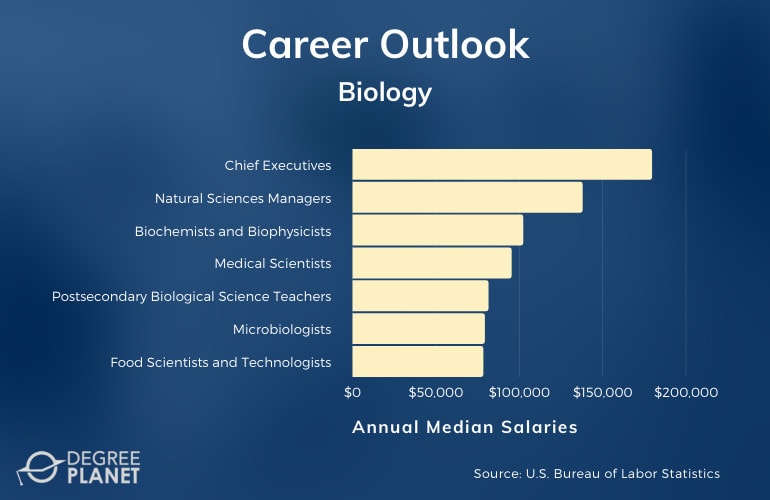
Professionals with a PhD in Biology can work in a variety of positions and fields, depending on their area of specialty.
Some qualify for senior or leadership positions in the field. Natural science managers often supervise the work of biologists and other scientists. Biophysicists study biological processes using the principles of physics, while microbiologists study microorganisms and often help research disease prevention.
Medical scientists investigate diseases in humans and work on prevention efforts. According to the Bureau of Labor Statistics , here’s a range of careers related to the field of biology.
| Chief Executives | $179,520 |
| Natural Sciences Managers | $137,900 |
| Biochemists and Biophysicists | $102,270 |
| Medical Scientists | $95,310 |
| Postsecondary Biological Science Teachers | $81,440 |
| Microbiologists | $79,260 |
| Food Scientists and Technologists | $78,340 |
| Environmental Scientists and Specialists | $76,530 |
| Soil and Plant Scientists | $66,750 |
| Zoologists and Wildlife Biologists | $64,650 |
There is a wide range of salaries for different specialties across the biological sciences. Life scientists study the physiology and anatomy of plants, animals, and humans as well as their environmental interactions.
Zoologists specifically study various animal species and their interactions with the environment. Wildlife biologists are similar to zoologists and research animal behavior, habitats, and biology. A PhD in Biology can also help you qualify for positions in academia. Postsecondary teachers in the field of biology often work at the college or university level, teaching biology courses and conducting research.
Biology PhD Curriculum & Courses

If you are considering a PhD in Biology, you may wonder what type of courses you’ll take. The study of biology involves studying the cellular makeup of living organisms and plants. You can also learn about the composition of molecules, germs, and bacteria.
In biology doctoral courses, you’ll often learn how to write scientifically and acquire skills to do laboratory research. Here are some standard courses associated with a PhD in Biology:
- Ecology : This type of course studies organisms and how they interact with their environment.
- Advanced Research Methods : This type of course covers how to conduct and assess research within the biological field.
- Microbiology : In this type of course, you’ll study microorganisms and their genetic structures.
- Zoology : This course topic deals with the scientific study of animals.
- Genetics : This type of course studies genes and heredity.
- Scientific Writing : You’ll learn how to write specifically for science-related fields.
- Enzymology : This type of course covers the study of enzymes, including their functions and interactions.
- Bacteriology : This course topic is the study of bacteria, exploring the identification and classification of bacterial species.
- Molecular Biology : This type of course studies molecular interactions between cells, including their chemical and physical structures.
- Cell Biology : This course is concerned with the study of cells and their structures and functions.
The courses you take for a doctoral degree in biology can vary according to your academic institution and program specialization.
Ph.D. in Biology Admissions Requirements

Each biology PhD program will have different admissions requirements, but there are some commonalities. Here are some typical admission requirements for a PhD in Biology:
- GRE or GMAT scores (only some schools require them)
- Letters of recommendation
- Professional statement outlining research experience
- Bachelor’s or master’s degree (dependent on the school)
- Transcripts from undergraduate and graduate coursework
Letters of recommendation are often a crucial part of the admissions process. These can help the admissions team get to know your professional strengths and accomplishments through the lens of other professionals. Other requirements for admissions could include an interview and an application fee, depending on your program.
Biology Doctorate Programs Accreditation

When looking for an online degree program, it’s crucial to consider the school’s accreditation status. Accrediting bodies such as the Council for Higher Education Accreditation (CHEA) help keep schools and programs accountable for meeting high-quality educational standards.
Regional accreditation is a mark of a high-quality school, and employers are more likely to recognize a degree that’s accredited. Accreditation can be a precondition for certain forms of financial aid as well. Attending an accredited school can give you the confidence that your time and effort is being invested in a credible degree.
Financial Aid and Scholarships

If you are considering getting a PhD in Biology, you may wonder what options are available to help you pay for school.
To apply for federal student aid, you can submit the Free Application for Federal Student Aid (FAFSA) . Many students qualify for student loans. Other forms of aid for PhD programs in biology might include state aid, scholarships, and employer programs. You may even be able to find scholarships specific to your area of specialization.
Your program may also offer teaching or research stipends to help with tuition. If you need help figuring out your financial aid options, you can talk with your financial aid office or academic advisor.
What Can You Do with a PhD in Biology?
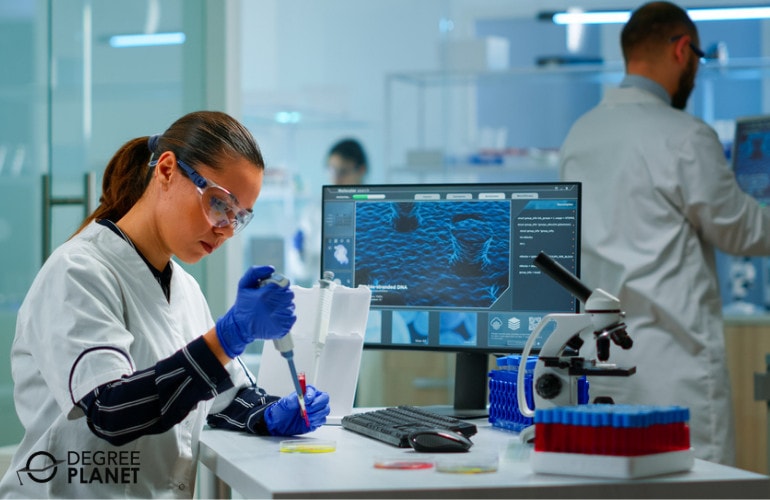
Earning a PhD in Biology can help you qualify for career opportunities in multiple sectors. Some professionals with a PhD in Biology work in universities, government jobs, or non-profit sectors. Some choose to focus heavily on research relevant to the natural sciences, while others focus on biological research at the cellular level.
Biology positions that typically require a PhD or doctorate include medical scientist, biochemist, and biophysicist. Biology experts may also pursue management or C-suite roles. What you can do with your PhD in Biology is primarily based on your prior experience and specialty area.
How Long Does It Take to Get a PhD in Biology Online?
A PhD program generally takes anywhere from 3 years to 5 years to complete. The time it takes to obtain your degree may be dependent on:
- The number of credit hours required by your program
- Your full-time or part-time enrollment status
- Your dissertation timeline
If your doctoral program does not require a dissertation, you can often complete it in as little as 3 years if you are a full-time student and enroll year-round. If you attend part-time, it will often take longer for you to complete your program.
Is a PhD in Biology Worth It?

Yes, a PhD in Biology is worth it for many students. Biological research is often useful for the general population. According to the Bureau of Labor Statistics, careers in the life, physical, and social sciences are projected to grow 8% over the next ten years.
Common biology career paths include medical scientist, natural sciences manager, biophysicist, biological scientist, and microbiologist. A PhD can also help you qualify for university teaching or research positions. Employment for postsecondary teachers is expected to grow 12% over the next ten years, which is faster than average growth (Bureau of Labor Statistics).
Universities Offering Online PhD in Biology Degree Program
Methodology: The following school list is in alphabetical order. To be included, a college or university must be regionally accredited and offer degree programs online or in a hybrid format.
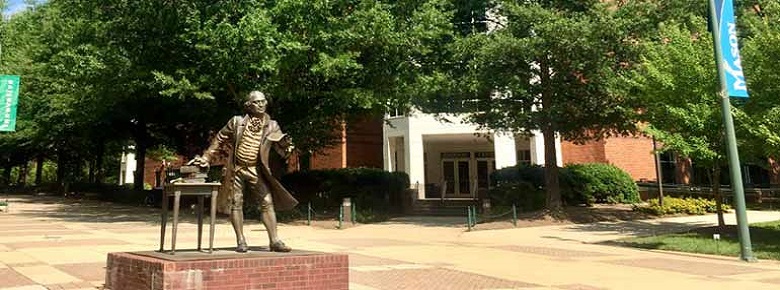
George Mason University offers an online program for a PhD in Bioinformatics and Computational Biology. It requires 72 total credits, with no campus visits required. Coursework includes Numerical Methods for Bioinformatics, Research Ethics, Biological Sequence and Genome Analysis, Protein Structure Analysis, and more. Students are also required to complete a dissertation.
George Mason University is accredited by the Southern Association of Colleges and Schools Commission on Colleges.
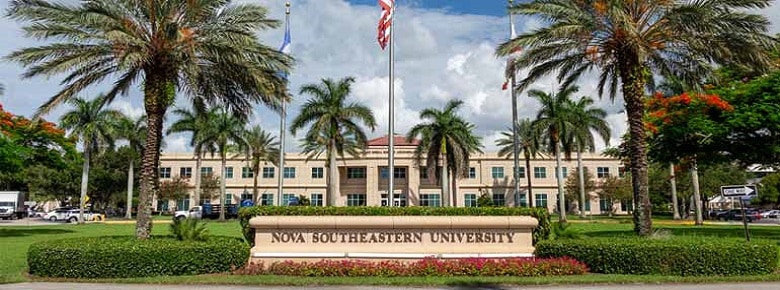
Nova Southeastern University offers a PhD in Oceanography and Marine Biology. Applications are accepted on a rolling basis, and students may begin coursework in the fall, winter, or summer terms. Coursework is available both on campus and online, and the curriculum is customizable to each student’s research interests and career goals.
NSU is accredited by the Southern Association of Colleges and Schools Commission on Colleges.

Texas Tech University offers a Doctor of Philosophy in Curriculum and Instruction (Track in STEM). The program is available mostly online, with face-to-face intensives during the summer. Students must complete 63 credit hours of coursework, and new students may start in the fall. Applicants must have at least 3 years of teaching experience.
Texas Tech University is accredited by the Southern Association of Colleges and Schools Commission on Colleges.
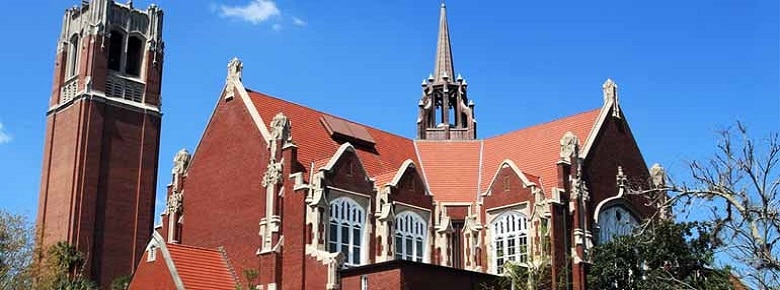
The University of Florida offers a PhD in Anatomical Science Education. Some courses are taken in the College of Education and others in the College of Medicine. Coursework includes Medical Human Embryology, Anatomy of the Peripheral Nervous System, Science Curriculum Development, and more.
The University of Florida is accredited by the Southern Association of Colleges and Schools Commission on Colleges.
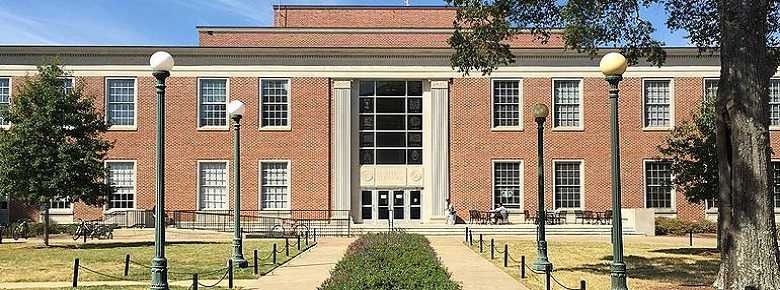
The University of Mississippi’s College of Education offers a Doctor of Philosophy in Education with an emphasis in Secondary Education with a specialization in Science (Biology). Some courses are available online or at campus locations other than the main campus. Applicants must have at least 2 years of teaching experience to qualify.
The University of Mississippi is accredited by the Southern Association of Colleges and Schools Commission on Colleges.
Getting Your PhD in Biology Online

Much like an online master’s in biology or an online masters in biotechnology , getting your PhD in Biology online is a flexible way to further your education and advance your expertise in the field. An online doctoral program in biology offers flexibility in the method of study to better suit your life and personalized education needs.
Through a terminal degree in biology, you can study your chosen specialization in depth. By the end of an online doctorate degree in biology, you have the opportunity to contribute new research to this field of study.
If you are considering a doctorate in biology, there are plenty of biology degree online options available from accredited universities. So why wait? You can start exploring your options for a PhD in Biology today.

Hand-Picked Top-Read Stories
Why you should or shouldn’t get a phd, what is self-plagiarism and how can you avoid it, what’s the difference between a dissertation and a thesis, trending tags, best online phds programs in biology, table of contents hide, the advantages of online phd programs in biology, factors to consider when choosing an online biology phd program, overview of specializations.
- 1. University of Florida (Anatomical Science Education)
- 2. Harvard University (Doctor of Public Health)
- 3. University of South Dakota (Ph.D. in Biology Sciences)
- 4. Nova Southeastern University (Ph.D. in Oceanography/Marine Biology)
- 5. Texas Tech University (Doctor of Philosophy in Curriculum and Instruction)
- 6. George Mason University (Ph.D. in Bioinformatics and Computational Biology)
- 7. Texas A&M University (Doctor of Philosophy in Biomedical Sciences)
PhD in biology online programs are a fantastic option for ambitious professionals who want to upscale their education. However, as there are so many accredited schools out there, it’s hard to find a program tailor-made to your preferences. This is why we’ve created a list of the 7 best biology PhD degree programs online in the U.S.
Aside from reviewing these courses, we’ll also explain why they’re worth your while and what to expect upon completion.
There are lots of reasons why you should get an online D. in biology. Aside from the obvious one, which is progressing in your career, these programs are perfect for working people with busy schedules. They’re also great for international students who want to get an American education without having to relocate abroad.
All in all, here are a few reasons why you should pursue an online doctorate degree in biology:
- Finishing a PhD course might be exhausting, but it will give you access to much more job opportunities. It’s also perfect for those who want to focus on research work or to start teaching biological subjects at a local university
- Unlike traditional courses, getting an online doctorate in biology offers much more flexibility. As mentioned, you don’t even have to be physically present to finish the classes. Aside from that, most programs are flexible when scheduling exams and performing other required tasks
- Finishing online PhD programs in biology is much cheaper than taking the same classes in person. As you’re not required to be on-premises, the school can take on many more students, allowing them to lower the costs in the process
- Online courses are also much more lenient for the faculty. As they won’t have to worry about so many things, they will have more time for emails and online communication
Getting a PhD in biology online is much better than getting a traditional degree. You would receive the same knowledge during these courses while incurring lower costs. These programs are especially great for working professionals who have too much on their plate as it is.
Choosing the right online PhD in molecular biology is tricky. The educational industry has grown significantly in the last few decades, partially because there are so many entrepreneurs starting their private schools. Separating the wheat from the chaff is a tricky thing, especially if you don’t know what to look for.
To help you out, we’ve listed the main factors you need to consider before choosing one of these courses:
- Look for programs that have institutional and, if possible, programmatic accreditation
- Old, reputable schools are always a better choice than the new universities that have been around for just a decade or two
- Always focus on graduates’ employment rates. In the end, you need to find a program that will give you real-world opportunities upon completion
- Keep in mind that your current area of expertise doesn’t have to affect your course choice. For example, you can go with a PhD online in cell biology even if your master’s focused on some other field
- Make sure that the faculty staff consists of top-tier theoretical and practical experts
- As for online programs, it’s best to choose the ones that give you more flexibility. Look for courses that have longer time-to-finish periods and that have flexible scheduling
- Lastly, you should also consider financial factors like price, financial aid, and cost-for-value
For the most part, choosing between online biology PhD programs is similar to choosing a bachelor’s or master’s. Always look for accredited, reputable institutions that can propel your career and ensure a future dream placement.
General Components of Online PhD Biology Programs
While online PhD in biology programs might vary in terms of activities, course hours, and timelines, they generally have a similar structure. Here are some of the most common components of an online program:
- Finishing various courses based on a specific number of credits
- Performing research and collecting results
- Having supervised sessions
- Performing midway evaluations
- Writing and defending a thesis
Unlike bachelor’s and master’s studies, PhD programs are much more focused on research. While you’ll still have traditional core and elected courses, it’s much more important to yield solid research results.
Here’s a breakdown of the most common biology specializations:
- General biology
- Marine biology
- Cell biology
- Microbiology
- Molecular biology
- Biochemistry
- Neuroscience
- Development biology
- Bioinformatics
- Parasitology
- Molecular genetics
- Environmental science
- Plant physiology
- Conservation biology
As you can see, the field is very diverse, giving students a lot of interesting options. Of course, your choice of studies will vary based on an institution.
7 Best Online PhDs Programs in Biology
Here’s a breakdown of the most popular biology PhD programs you can find online:
1. University of Florida ( Anatomical Science Education )
The University of Florida is among the best, most reputable educational institutions in the U.S. Initially established in 1853, it moved its campus to Gainesville in 1906 and is now the third most-populated university in the state. While the school has a relatively low acceptance rate of 30%, almost all graduates will finish the courses (88% graduation rate).
If you’re interested in a biology PhD, the university offers you a degree in Anatomical Science Education. Students have to finish 90 hours of credits to graduate, going through subjects like essential human anatomy, medical cell biology, and medical histology.
As in other PhD programs, you’re required to write and defend your thesis for full completion. You can choose from a wide array of medical topics, which would ideally combine several fields of research. This institution has received its accreditation from the Southern Association of Colleges and Schools Commission on Colleges.
2. Harvard University ( Doctor of Public Health )
Currently ranked the 2nd best university in the country, Harvard is one of those institutions that need no introduction. Given that this school was founded in 1636, it is one of the oldest such organizations in the country. Despite its popularity, Harvard “only” has 21,600 students, taught by approximately 2,400 staff members.
As for this particular program, it is more of a hybrid course held at T.H. Chan School of Public Health. Upon finishing, you should get an incredible multidisciplinary degree that combines innovative thinking, leadership, management, and communication skills with public health education.
The program is geared toward experts who have been working in the public health field for at least 6 years. Aside from traditional academic skills and knowledge, you’ll also gain access to experimental methodologies. The graduates are supposed to drive societal changes and introduce full-scale improvements to the existing medical systems.
3. University of South Dakota ( Ph.D. in Biology Sciences )
The University of South Dakota is the only institution in the state that offers online Doctor of Biology degrees. As one of the oldest institutions in the region, the school has been around since 1862, making it 27 years older than the state itself. Right now, the institution counts almost 10,000 students, out of which 2,500 are postgraduates.
The great news is that the institution offers several specializations in biology sciences, including conservative biology, integrative biology, and neurosciences. During the course, a student has to complete 60 credit hours, with 24 to 40 hours allocated to dissertation research. To get a degree, attendees must be at a 700+ level for 50% of the study program.
Depending on your specialization, you’ll have a certain number of optional credit hours. For example, conservative biology carries 15 credit hours, integrative biology has 16 credit hours, and neuroscience has 15. Aside from having a related degree, you also need a statement of purpose and a letter of recommendation to enroll.
4. Nova Southeastern University ( Ph.D. in Oceanography/Marine Biology )
When talking about online doctoral degree programs, it’s hard not to mention Nova Southeastern University. This school features 16 different courses ranging from criminal science to cybersecurity and, naturally, biology. While the organization is relatively new compared to its peers, established in 1964, the quality of education is definitely worth your while.
If you’re interested in marine biology, this school should be one of your top choices. As one of the students, you’ll have full access to their Center for Collaborative Research, which is among the top research facilities in the country. Right now, there are more than 200 projects being held on premises, analyzing phenomena like coral reef deterioration.
During the course, you’re required to obtain 76 credits, out of which 42 are upper-level coursework. The great thing about online students is that you can choose three rolling terms in May, January, or August. Lastly, it’s worth noting that the university features a massive library with 17,000 publications that will make your studies much easier (if you’re close to the campus).
5. Texas Tech University ( Doctor of Philosophy in Curriculum and Instruction )
Situated in Lubbock, Texas, this organization recently celebrated 100 years of existence. With more than 40,000 students, Texas Tech is ranked 6th most populated university in the state. New students can choose between 13 colleges and 150 courses, many of which are in the biology field.
An interesting thing about the institution is that 25% of its students are of Hispanic descent, which classifies the school as a Hispanic-serving institution. As for this online Ph.D. program, it has a track in STEM Education, making it perfect for students who want to teach in elementary and middle schools and colleges.
To get a degree, you’ll need 63 credit hours. You’ll also need official GRE scores that are at the latest 5 years old and a master’s degree in the educational field. After finishing the course, you should have a better understanding of current methodological approaches and STEM challenges.
6. George Mason University ( Ph.D. in Bioinformatics and Computational Biology )
George Mason University was founded in 1949 and is one of the biggest public universities in the state and wider region. The establishment is located in Fairfax County, Virginia, and is classified as “R1: Doctoral Universities – Very high research activity.” In other words, it’s a perfect destination for all those who wish to hone their skills and progress in the world of academia.
Given that this is an interdisciplinary course, anyone with a chemistry, computer science, or biology degree can apply for it. Besides the fact that the university has its own research premises, students can also benefit by going to nearby FDA, USDA, NIH, and FBI facilities.
You can finish the entire program online without ever showing yourself on campus, making it perfect for working people. To finish the program, you’ll need to complete 72 credit hours, out of which 13 core courses, 23 to 35 elective courses, and 12 to 24 research courses. Some of the core courses include research ethics, protein structure analysis, and numerical methods for bioinformatics.
7. Texas A&M University ( Doctor of Philosophy in Biomedical Sciences )
An interesting thing about Texas A&M is that this was the first higher education organization in the state. It was founded back in 1876, and since 2021, it boasts the largest student body in the country. Right now, the university has about 73,000 students (10,000 postgraduates) being taught by 11,000 staff members.
The institution received its accreditation from the Southern Association of Colleges and Schools Commission on Colleges, making it a safe choice for online students. As for its biomedical Ph.D. program, it consists of 4 tracks, including infection, immunity, and epidemiology, physiology and developmental biology, biomedical genomics and bioinformatics, and diagnostics and therapeutics.
The program has 64 semester credit hours (if you have a master’s or professional degree) or 96 credit hours. Most students will manage to finish the course in 12 to 15 semesters.
Any of these seven programs would be a good choice. Most students focus on institutions that provide their preferred specialization, while others choose a university based on its reputation. Whatever the case, we hope that our short guide will help you make the right decision for your future!

PHD in Economics, Associate Professor, Department of Business Process Management, Faculty of Market Technologies IOM
Ph.D. Program
The training for a Ph.D. in Biology is focused on helping students achieve their goals of being a successful research scientist and teacher, at the highest level. Students work closely with an established advisor and meet regularly with a committee of faculty members to facilitate their progress. The Biology Ph.D. program is part of the larger Biosciences community at Stanford, which includes doctorate programs in the basic science departments at Stanford Medical School.
There are two tracks within the Biology Ph.D. program:
- Cell, Molecular and Organismal Biology
- Ecology and Evolution
(Previously a part of the Department of Biology Hopkins Marine Station is now a part of the Oceans Department within Stanford Doerr School of Sustainability )
All tracks are focused on excellence in research and teaching in their respective areas; where there are differences between the tracks, they are indicated in the links below.
Requirements & Forms
Dissertation defense, cellular and molecular biology training program, stanford biology preview program (bpp): navigating the stanford biology phd application process, career development resources.
We're sorry but you will need to enable Javascript to access all of the features of this site.
Stanford Online
Genetics and genomics program.
Stanford School of Medicine , Stanford Center for Health Education
Get Started
Thank you for your interest in the Stanford Genetics and Genomics Program!
We are now offering two new programs: Foundations of Genetics and Genomics and Advanced Topics in Genetics and Genomics.
Foundations of Genetics and Genomics
New technologies and breakthroughs in research are impacting the health and medicine industries and allowing for the use of personalized medicine, genetic engineering, and more. But what does this all mean, and how are these innovations occurring? Understanding the core concepts of genes and genomes will help you grasp how researchers and health professionals improve disease diagnosis, prevention, and treatment. From studying the function and structure of chromosomes to examining the genetic codes found in DNA, the Foundations of Genetics and Genomics track will give you the fundamental knowledge needed to understand how we can progress in our work targeting human health and disease and prepare you to explore more advanced topics.
Advanced Topics in Genetics and Genomics
Technologies like CRISPR and stem cell therapies, and research such as those in the fields of epigenetics and biotechnology, are changing how we understand and develop solutions for medicine, biology, and agriculture. The fields of genetics and genomics are constantly evolving from personalized treatment plans based on your genes, lifestyle, and environment to manipulating DNA and editing genetic code. The Advanced Topics in Genetics and Genomics track allows you to dive deeper into the topics you care about and provides you with up-to-date information on cutting-edge research and technologies in the health and medicine industries today.
- Preview Image
- Course/Course #
- Time Commitment
- Availability

Fundamentals of Genetics: The Genetics You Need To Know

Genomics and the Other Omics: The Comprehensive Essentials
Advanced topics in genetics and genomics.

Principles and Practices of Gene Therapy

Understanding Cancer at the Genetic Level

Genetic Engineering and Biotechnology

Stem Cell Therapeutics

Personal Genomics and Your Health

New Frontiers in Cancer Genomics

Epigenetics and Microbiomics in Precision Health

Biology and Applications of the CRISPR/Cas System
Teaching team.

Russ Altman
Kenneth Fong Professor
Bioengineering
Russ Biagio Altman is the Kenneth Fong Professor of Bioengineering, Genetics, Medicine, Biomedical Data Science and (by courtesy) Computer Science) and past chairman of the Bioengineering Department at Stanford University. His primary research interests are in the application of computing and informatics technologies to problems relevant to medicine. He is particularly interested in methods for understanding drug action at molecular, cellular, organism and population levels. His lab studies how human genetic variation impacts drug response (e.g., http://www.pharmgkb.org/). Other work focuses on the analysis of biological molecules to understand the actions, interactions and adverse events of drugs (e.g., http://feature.stanford.edu/). He helps lead an FDA-supported Center of Excellence in Regulatory Science & Innovation.
Dr. Altman holds an AB from Harvard College, and an MD from Stanford Medical School, and a PhD in Medical Information Sciences from Stanford. He received the U.S. Presidential Early Career Award for Scientists and Engineers and a National Science Foundation CAREER Award. He is a fellow of the American College of Physicians (ACP), the American College of Medical Informatics (ACMI), the American Institute of Medical and Biological Engineering (AIMBE), and the American Association for the Advancement of Science (AAAS). He is a member of the National Academy of Medicine (formerly the Institute of Medicine, IOM). He is a past-president, founding board member, and a fellow of the International Society for Computational Biology (ISCB), and a past-president of the American Society for Clinical Pharmacology & Therapeutics (ASCPT). He has chaired the Science Board advising the FDA commissioner, served on the NIH Director’s Advisory Committee, and co-chaired the IOM Drug Forum. He is an organizer of the annual Pacific Symposium on Biocomputing, and a founder of Personalis, Inc. Dr. Altman is board certified in Internal Medicine and in Clinical Informatics. He received the Stanford Medical School graduate teaching award in 2000 and mentorship award in 2014.

Ximena Ares
Licensing Associate
Stanford University
Ximena Ares is a Licensing Associate at the Stanford Office of Technology Licensing (OTL). Dr. Ares received her Ph.D training in Molecular Biology in Buenos Aires, Argentina and completed her postdoctoral training at the University of California, San Francisco in Human Genetics. Later, she was a scientist at Geron Corporation and a Research Fellow at the Molecular Sciences Institute in Berkeley, California. She joined Stanford OTL in 2004, where she manages a portfolio of about 250 life sciences inventions, makes decisions about their intellectual property protection and negotiates license agreements and other contracts.

Euan Ashley
Roger and Joelle Burnell Professor
- School of Medicine
Born and raised in Scotland, Euan Angus Ashley graduated with 1st class Honors in Physiology and Medicine from the University of Glasgow. He completed medical residency and a PhD in molecular cardiology at the University of Oxford before moving to Stanford University where he trained in cardiology and advanced heart failure joining the faculty in 2006. His group is focused on the application of genomics to medicine. In 2010, he led the team that carried out the first clinical interpretation of a human genome. The paper published in the Lancet was the focus of over 300 news stories, became one of the most cited articles in clinical medicine that year, and was featured in the Genome Exhibition at the Smithsonian in DC. The team extended the approach in 2011 to a family of four and now routinely apply genome sequencing to the diagnosis of patients at Stanford hospital where Dr Ashley directs the Clinical Genome Service and the Center for Inherited Cardiovascular Disease. In 2013, Dr Ashley was recognized by the White House Office of Science and Technology Policy for his contributions to Personalized Medicine. In 2014, Dr Ashley became co-chair of the steering committee for the NIH Undiagnosed Diseases Network. Dr Ashley is a recipient of the National Innovation Award from the American Heart Association (AHA) and a National Institutes of Health (NIH) Director’s New Innovator Award. He is a member of the AHA Council on Functional Genomics, and the Institute of Medicine (IOM) of the National Academy of Sciences Roundtable on Translating Genomic-Based Research for Health. He is a peer reviewer for the NIH and the AHA as well as journals including Nature, the New England Journal of Medicine, the Lancet and the Journal of Clinical Investigation. He is co-founder of Personalis Inc, a genome scale genetic diagnostics company. Father to three young Americans, in his ‘spare’ time, he tries to understand American football, plays the saxophone, and conducts research on the health benefits of single malt Scotch whisky.

Laura Attardi
Catharine and Howard Avery Professor
Academic Appointments
- Professor, Radiation Oncology - Radiation and Cancer Biology
- Professor, Genetics
- Member, Bio-X
- Member, Child Health Research Institute
- Member, Stanford Cancer Institute

Israeli Society of Gene and Cell Therapy
Administrative Appointments
Founder of LogicBio Therapeutics, a gene therapy company (2014) Member of the American Society of Gene and Cell therapy (2011)
Honors & Awards
Presidential symposium lecturer at the annual meeting of the American Society for Gene and Cell Therapy (ASGCT) (2014) Recipient of the Child Health Research Institute (CHRI) fellowship (2013) 1st place- Stanford Genetics Department “Big Idea” Contest (2012)
Professional Education
MSc, Tel Aviv University, Tel Aviv, Israel, Genetics (2006) PhD, Tel Aviv University, Tel Aviv, Israel, Genetics (2011) Postdoctoral fellow, Stanford University (2011)

Michael Bassik
Associate Professor, Genetics

Chris Bjornson
Senior Scientific Researcher
Chris Bjornson holds a Ph.D. from the University of Washington and has served as a Research Associate for Calos Lab, Stanford University.

Anne Brunet
Michele And Timothy Barakett Endowed Professor
Anne Brunet is a Professor of Genetics at Stanford University. Dr. Brunet is interested in the molecular mechanisms of aging and longevity, with a particular emphasis on the nervous system. Her lab is interested in identifying pathways involved in delaying aging in response to external stimuli such as availability of nutrients and mates. She also seeks to understand the mechanisms that influence the rejuvenation of old stem cells. Finally, her lab has pioneered the naturally short-lived African killifish as a new model to explore the regulation of aging and age-related diseases.

Senior Scientist, Population Genetics
Katarzyna ("Kasia") Bryc is a Senior Scientist of Population Geneticist at 23andMe. Dr. Bryc has developed statistical models that leverage genetic data to learn about ancient human history and migrations, recent population admixture and other forces shaping the human genome. Her prior research illuminated the genetic population structure of Africans, and the complex admixture of African Americans and Hispanic/Latino populations. Dr. Bryc received a B.A. from Stanford University, and her M.S. and Ph.D. in Biometry at Cornell under Dr. Carlos Bustamante. Prior to joining 23andMe, she was a NIH Ruth L. Kirschstein National Research Fellow at Harvard Medical School with Dr. David Reich, where she developed statistical methods to infer genetic diversity from sequence data.

Michele Calos
Professor, Genetics (Emerita)
Professor, Genetics
Member, Bio-X
Member, Child Health Research Institute
Chair, School of Medicine Appointments and Promotions Committee (2008 - 2010)
- Searle Scholar Award, Searle Family Foundation (1986)
- Graduate Fellowship, National Science Foundation (1979)
- B.A., M.A., Oxford University, Zoology
- Ph.D., Harvard University, Biochemistry & Molecular Biology
- Postdoc., University of Geneva, Biologie Moleculaire
Community and International Work
- Member, Board of Directors, American Society of Gene and Cell Therapy
- Advisory Committee, United States Food and Drug Administration, Bethesda, Maryland

Jan Carette
Associate Professor, Microbiology and Immunology

Mildred Cho
Professor, Pediatrics and Medicine

Emily Crane
Senior Principle Scientific Researcher
Dr. Emily Crane grew up in Palo Alto, California. She left the sunshine state to earn her B.A. in Biology from Carleton College in Northfield, Minnesota. She returned to California in 2005, where she enrolled in graduate school at UC Berkeley and began training as a geneticist with Dr. Barbara Meyer. She studied the connection between gene expression regulation and chromosome structure, earning a Ph.D. in Molecular and Cell Biology in 2011. While pursuing her doctorate she was able to first pair research with teaching as a Graduate Student Instructor for both lab and lecture courses. She is currently a NIH IRACDA postdoctoral fellow at Stanford University, which allows her to do research while also teaching as a visiting professor at San Jose State University. At Stanford she works in Dr. Jin Li’s lab, where she is currently setting up a screening system to look for regulators of RNA editing. Dysregulation of RNA editing has been linked to neurological diseases and cancers, and its complete loss is lethal. Emily is passionate about the rapidly expanding field of personal genomics, which will soon be an indispensable resource for improving patient health.

Christina Curtis
Professor, Genetics and Biomedical Data Science
The Curtis laboratory couples innovative experimental approaches, high-throughput omic technologies, statistical inference and computational modeling to interrogate the evolutionary dynamics of tumor progression and therapeutic resistance. To this end, Dr. Curtis and her team have developed an integrated experimental and computational framework to measure clinically relevant patient-specific parameters and to measure clonal dynamics. Her research also aims to develop a systematic interpretation of genotype/phenotype associations in cancer by leveraging state-of-the-art technologies and robust data integration techniques. For example, using integrative statistical approaches to mine multiple data types she lead a seminal study that redefined the molecular map of breast cancer, revealing novel subgroups with distinct clinical outcomes and subtype-specific drivers.

Barbara Dunn
Final Foods Inc.
Barbara Dunn is a Senior Biocuration Research Scientist in the Department of Genetics at Stanford University, currently working with the Saccharomyces Genome Database in the laboratory of Dr. J. Michael Cherry. She received her A.B. in Botany at Berkeley, and her Ph.D. in Biological Chemistry at Harvard University, where she studied yeast telomeres in the laboratory of Dr. Jack Szostak. Her recent research has focused on using whole-genome DNA and RNA sequencing, ChIP-Seq, array-CGH, and other “omics” methods to broadly explore evolution in yeast, and particularly the genome structures and genome evolution of industrial yeasts (lager, ale, wine, ethanol, bread).

Dianna Fisk
Senior Scientific Curator
Dianna received her B.S. in Biology from Marquette University and her Ph.D. in Molecular Biology, Cell Biology and Genetics from the University of Oregon, where she studied how nuclear and chromosomal gene expression are coordinately regulated, in the laboratory of Dr. Alice Barkan. She then went on to work as a Scientific Curator under Dr. David Botstein and Dr. J. Michael Cherry, at the Saccharomyces Genome Database (SGD). After 13 years of analyzing, assembling and organizing the vast amounts of detailed biochemical and genetic data available on yeast, she switched to interpretation of human genomics data and is now the Senior Biocurator at the Stanford Clinical Genomics Service.

Professor, Medicine and Genetics
Dr. Ford is a medical oncologist and geneticist at Stanford, devoted to studying the genetic basis of breast and GI cancer development, treatment and prevention. Dr. Ford graduated in 1984 Magna Cum Laude (Biology) from Yale University where he later received his M.D. degree from the School of Medicine in 1989. He was a internal medicine resident (1989-91), Clinical Fellow in Medical Oncology (1991-94), Research Fellow of Biological Sciences (1993-97) at Stanford, and joined the faculty in 1998. He is currently Associate Professor of Medicine (Oncology) and Genetics, and Director of the Stanford Cancer Genetics Clinic, at the Stanford University Medical Center. Dr. Ford’s research goals are to understand the role of genetic changes in cancer genes in the risk and development of common cancers. He studies the role of the p53 and BRCA1 tumor suppressor genes in DNA repair, and uses techniques for high-throughput genomic analyses of cancer to identify molecular signatures for targeted therapies. Recently, his team has identified a novel class of drugs that target DNA repair defective breast cancers, and have opened clinical trials at Stanford and nationally using these “PARP inhibitors” for the treatment of women with “triple-negative” breast cancer. Dr. Ford’s clinical interests include the diagnosis and treatment of patients with a hereditary pre-disposition to cancer. He runs the Stanford Cancer Genetics Clinic, that sees patients for genetic counseling and testing of hereditary cancer syndromes, and enters patients on clinical research protocols for prevention and early diagnosis of cancer in high-risk individuals.

Hinco Gierman
VP Precision Oncology

Julie Granka
Principal Scientist, Statistical Genetics
Julie Granka is a biologist and a statistician with expertise in genetics and evolution who currently serves as the Director of Personalized Genomics at Ancestry.com. Dr. Granka has experience developing and applying advanced computational tools to genetic data to understand population history and evolution. During fieldwork in South Africa, she collected and analyzed DNA samples from an African hunter-gatherer population to uncover the genetic basis of human height and skin pigmentation. Dr. Granka has also analyzed numerous other African populations to identify regions of the human genome where positive natural selection has occurred in recent history. In addition, she has studied the genetics of other organisms, including M. tuberculosis, the organism that causes tuberculosis. Dr. Granka received a B.S. in Biometry and Statistics from Cornell University where she worked with Dr. Carlos Bustamante. Afterwards, she received an M.S. in Statistics and a Ph.D. in Biology with Dr. Marcus Feldman at Stanford University.

Hank Greely
Deane F. and Kate Edelman Johnson Professor of Law
- Stanford Law School
Henry T. "Hank" Greely is the Deane F. and Kate Edelman Johnson Professor of Law and Professor, by courtesy, of Genetics at Stanford University. He specializes in ethical, legal, and social issues arising from advances in the biosciences, particularly from genetics, neuroscience, and human stem cell research. He chairs the California Advisory Committee on Human Stem Cell Research and the steering committee of the Stanford University Center for Biomedical Ethics, and directs the Stanford Center for Law and the Biosciences and the Stanford Program in Neuroscience and Society. He serves as a member of the NAS Committee on Science, Technology, and Law; the NIGMS Advisory Council, the Institute of Medicine’s Neuroscience Forum, and the NIH Multi-Center Working Group on the BRAIN Initiative. Professor Greely graduated from Stanford in 1974 and from Yale Law School in 1977. He served as a law clerk for Judge John Minor Wisdom on the United States Court of Appeals for the Fifth Circuit and for Justice Potter Stewart of the United States Supreme Court. He began teaching at Stanford in 1985.

Will Greenleaf
William Greenleaf is an Associate Professor in the Genetics Department at Stanford University School of Medicine, with a courtesy appointment in the Applied Physics Department. He is a member of Bio-X, the Biophysics Program, the Biomedical Informatics Program, and the Cancer Center. He received an A.B. in physics from Harvard University (summa cum laude) in 2002, and received a Gates Fellowship to study computer science for one year in Trinity College, Cambridge, UK (with distinction). After this experience abroad, he returned to Stanford to carry out his Ph.D. in Applied Physics in the laboratory of Steven Block, where he investigated, at the single molecule level, the chemo-mechanics of RNA polymerase and the folding of RNA transcripts. He conducted postdoctoral work in the laboratory of X. Sunney Xie in the Chemistry and Chemical Biology Department at Harvard University, where he was awarded a Damon Runyon Cancer Research Foundation Fellowship, and developed new fluorescence-based high-throughput sequencing methodologies. He moved to Stanford as an Assistant Professor in November 2011. Since beginning his lab, he has been named a Rita Allen Foundation Young Scholar, an Ellison Foundation Young Scholar in Aging (declined), a Baxter Foundation Scholar, and a Chan-Zuckerberg Investigator. His highly interdisciplinary research links molecular biology, computer science, bioengineering, and genomics a to understand how the physical state of the human genome controls gene regulation and biological state. Efforts in his lab are split between building new tools to leverage the power of high-throughput sequencing and cutting-edge microscopies, and bringing these new technologies to bear against basic biological questions of genomic and epigenomic variation. His long-term goal is to unlock an understanding of the physical “regulome” — i.e. the factors that control how the genetic information is read into biological instructions — profoundly impacting our understanding of how cells maintain, or fail to maintain, their state in health and disease.

Arthur Grossman
Professor (by courtesy), Biology
Arthur Grossman has been a Staff Scientist at The Carnegie Institution for Science, Department of Plant Biology since 1982, and holds a courtesy appointment as Professor in the Department of Biology at Stanford University. He has performed research across fields ranging from plant biology, microbiology, marine biology, ecology, genomics, engineering and photosynthesis and initiated large scale algal genomics by leading the Chlamydomonas genome project (sequencing of the genome coupled to transcriptomics). During his tenure at Carnegie, he mentored more than fifteen PhD students and approximately 40 post-doctoral fellows (many of whom have become very successful independent scientists at both major universities and in industry). In 2002 he received the Darbaker Prize (Botanical Society of America) for work on microalgae and in 2009 received the Gilbert Morgan Smith Medal (National Academy of Sciences) for the quality of his publications on marine and freshwater algae. In 2015 he was Vice Chair of the Gordon Research Conference on Photosynthesis and in 2017 was Chair of that same conference (Photosynthetic plasticity: From the environment to synthetic systems). He also gave the Arnon endowed lecture on photosynthesis in Berkeley in March of 2017, has given numerous plenary lectures and received a number of fellowships throughout his career, including the Visiting Scientist Fellowship - Department of Life and Environmental Sciences (DiSVA), Università Politecnica delle Marche (UNIVPM) (Italy, 2014), the Lady Davis Fellowship (Israel, 2011) and most recently the Chaire Edmond de Rothschild (to work IBPC in Paris in 2017-2018). He has been Co-Editor in Chief of Journal of Phycology and has served on the editorial boards of many well-respected biological journals including the Annual Review of Genetics, Plant Physiology, Eukaryotic Cell, Journal of Biological Chemistry, Molecular Plant, and Current Genetics. He has also reviewed innumerable papers and grants, served on many scientific panels that has evaluated various programs for granting agencies [NSF, CNRS, Marden program (New Zealand)] and private companies. He has also served on scientific advisory boards for both nonprofit and for profit companies including Phoenix Bioinformatics, Excelixis, Martex, Solazyme/TerraVia, Checkerspot and Phycoil.

Bethann Hromatka
Senior Director, Medical Affairs
Puma Biotechnology, Inc.

Natalie Jaeger
Senior Scientist
DKFZ German Cancer Research Center
Natalie is a Post-Doctoral Scientist in the laboratory of Professor Michael Snyder at Stanford University. Her duties include applying approaches comprising genome sequencing, transcriptomics, and proteomics to the analysis of human disease, to help understand the molecular basis of disease and aid the development of diagnostics and therapeutics.

Dennis Farrey Family Professor of Genetics
Mark A. Kay, MD, PhD, is the Director of the Program in Human Gene Therapy, and Professor in the Department of Pediatrics and Genetics at Stanford University School of Medicine. Dr. Kay is one of the founders of the American Society of Gene Therapy and served as its President in 2005-2006. Dr. Kay received the E. Mead Johnson Award for Research in Pediatrics in 2000 and was elected to the American Society for Clinical Investigation in 1997. He has organized many national and international conferences, including the first Gordon Conference related to gene therapy.
Kay is respected worldwide for his work in gene therapy for hemophilia and viral hepatitis. He is an Associate Editor of Human Gene Therapy and Molecular Therapy, and a member of the editorial boards of other peer-reviewed publications.
Here at Stanford University, Dr. Kay is involved in many committees, including the Administrative Panel on Biosafety Committee, and Chair of the Berry Foundation Committee. Along with his work in Gene Therapy Dr. Kay is an avid photographer and enjoys spending time outdoors photographing wildlife.

Professor, Developmental Biology (Emeritus)
Dr. Kim's lab's research focuses are in C. elegans aging, human aging, cell lineage analyzer, and ModENCODE.
Students, fellows, and faculty in the Department of Developmental Biology are working at the forefront of basic science research to understand the molecular mechanisms that generate and maintain diverse cell types in many different contexts, including the embryo, various adult organs, and the evolution of different species. Research groups use a wide array of cutting-edge approaches including genetics, genomics, computation, biochemistry, and advanced imaging, in organisms ranging from microbes to humans. This work has connections to many areas of human health and disease, including stem cell biology, aging, cancer, diabetes, arthritis, infectious disease, autoimmune disease, neurological disorders, and novel strategies for stimulating repair or regeneration of body tissues.

Jane Lebkowski
Regenerative Patch Technologies
President of Research and Development, Asterias

Joe Lipsick
Professor, Pathology and Genetics
Since participating in the initial identification of the protein product of the v-Myb oncogene as a postdoctoral fellow, Dr. Lipsick has dedicated his research career to understanding the function of the highly conserved Myb oncogene family. The laboratory has initially focused on the retroviral v-Myb oncogene and its cellular homologue, c-Myb. More recently, they have focused on the fruit fly Drosophila melanogaster as a model organism for understanding the human Myb oncogene family. They created the first null mutants of the sole Drosophila Myb gene, and showed that the absence of Myb resulted in mitotic abnormalities including chromosome condensation defects, aneuploidy, polyploidy, and aberrant spindle formation. In collaboration with the laboratory of Michael Botchan (UC Berkeley), they also showed that Myb was required for the site-specific initiation of DNA replication that occurs during chorion gene amplification in adult ovarian follicle cells. They themselves then showed that the absence of Myb causes a failure in the normal progression of chromosome condensation from heterchromatin to euchromatin. Most recently, they have found that Myb acts in opposition to repressive E2F and RB proteins to epigenetically regulate the expression of key components of the spindle assembly checkpoint and spindle pole regulatory pathways.

Kelly Ormond
Adjunct Professor, Genetics
Kelly Ormond is a genetic counselor (US ABGC certified) and ELSI researcher. She received her MS in Genetic Counseling from Northwestern University (1994) and a post-?graduate certificate in Clinical Medical Ethics from the MacLean Center at the University of Chicago (2001). She joined the Health Ethics and Policy Lab as a Senior Scientist in February 2021, and is an Adjunct Professor in the Department of Genetics at Stanford School of Medicine, Stanford University, California, USA

Matthew Porteus
Sutardja Chuk Professor
Dr. Porteus was raised in California and was a local graduate of Gunn High School before completing A.B. degree in “History and Science” at Harvard University where he graduated Magna Cum Laude and wrote an thesis entitled “Safe or Dangerous Chimeras: The recombinant DNA controversy as a conflict between differing socially constructed interpretations of recombinant DNA technology.” He then returned to the area and completed his combined MD, PhD at Stanford Medical School with his PhD focused on understanding the molecular basis of mammalian forebrain development with his PhD thesis entitled “Isolation and Characterization of TES-1/DLX-2: A Novel Homeobox Gene Expressed During Mammalian Forebrain Development.” After completion of his dual degree program, he was an intern and resident in Pediatrics at Boston Children’s Hospital and then completed his Pediatric Hematology/Oncology fellowship in the combined Boston Chidlren’s Hospital/Dana Farber Cancer Institute program. For his fellowship and post-doctoral research he worked with Dr. David Baltimore at MIT and CalTech where he began his studies in developing homologous recombination as a strategy to correct disease causing mutations in stem cells as definitive and curative therapy for children with genetic diseases of the blood, particularly sickle cell disease. Following his training with Dr. Baltimore, he took an independent faculty position at UT Southwestern in the Departments of Pediatrics and Biochemistry before again returning to Stanford in 2010 as an Associate Professor. During this time his work has been the first to demonstrate that gene correction could be achieved in human cells at frequencies that were high enough to potentially cure patients and is considered one of the pioneers and founders of the field of genome editing—a field that now encompasses thousands of labs and several new companies throughout the world. His research program continues to focus on developing genome editing by homologous recombination as curative therapy for children with genetic diseases but also has interests in the clonal dynamics of heterogeneous populations and the use of genome editing to better understand diseases that affect children including infant leukemias and genetic diseases that affect the muscle. Clinically, Dr. Porteus attends at the Lucille Packard Children’s Hospital where he takes care of pediatric patients undergoing hematopoietic stem cell transplantation.

Vice President of Program Management
Jose loves talking about science, especially to non-scientists. He has been involved in science outreach and education since he first learned of the simplicity and beauty of the structure of DNA. Naturally, Jose went on to graduate school at Stanford where he received a M.A. in Education and a Ph.D. in Developmental Biology. His doctoral work focused on understanding how epigenetic regulators control the biology of adult stem cells. For example, when some of these regulators misbehave, stem cells are lost to the detriment of the tissue they normally maintain. Why? How? Well, Jose still doesn’t know, but he hopes his work helped add one more piece to the never-ending puzzle of scientific research. After finishing his Ph.D., Jose moved to St. Louis, MO and joined Monsanto as part of a rotational leadership program, where he’s been doing a number of fun things both close and far from his science background. His year-long rotations have spanned biotechnology regulation and policy, global technology strategy, and development of molecular detection technologies. All of these rotations have complemented each other and contributed to his passion for sustainably and safely increasing food productivity and agricultural efficiency. Jose’s favorite activity is backpacking and talking about how light his backpack is over an open fire under the Milky Way-splattered sky of the Sierra Nevada. When he’s not outdoors, which is more frequent than he’d like, Jose enjoys good beer (peanut butter chocolate milk stout is real and delicious), good music (Tool), and thoughtful discussions involving science, education and politics.

Jonathan Pritchard
Bing Professor of Population Studies
Jonathan Pritchard is a Professor of Genetics and Biology at Stanford University. He received his BSc in Biology and Mathematics from Penn State University in 1994, and his PhD in Biology at Stanford in 1998. After that he moved to a postdoc in the Department of Statistics at Oxford University and then to his first faculty job at the University of Chicago in 2001. He has been an Investigator of the Howard Hughes Medical Institute since 2008.

Li (Stanley) Qi
Associate Professor

Maria Grazia Roncarolo
George D. Smith Professor
Maria Grazia Roncarolo, MD is the co-director of the Institute for Stem Cell Biology and Regenerative Medicine, the George D. Smith Professor in Stem Cell and Regenerative Medicine, Professor of Pediatrics and of Medicine (blood and marrow transplantation), chief of the Division of Pediatric Stem Cell Transplantation and Regenerative Medicine, and co-director of the Bass Center for Childhood Cancer and Blood Diseases.
Dr. Roncarolo leads efforts to translate scientific discoveries in genetic diseases and regenerative medicine into novel patient therapies, including treatments based on stem cells and gene therapy. A pediatric immunologist by training, she earned her medical degree at the University of Turin, Italy. She spent her early career in Lyon, France, where she focused on severe inherited metabolic and immune diseases, including severe combined immunodeficiency (SCID), better known as the "bubble boy disease." Dr. Roncarolo was a key member of the team that carried out the first stem cell transplants given before birth to treat these genetic diseases.
While studying inherited immune diseases, Dr. Roncarolo discovered a new class of T cells. These cells, called T regulatory type 1 cells, help maintain immune system homeostasis by preventing autoimmune diseases and assisting the immune system in tolerating transplanted cells and organs. Recently, Dr. Roncarolo completed the first clinical trial using T regulatory type 1 cells to prevent severe graft-versus-host disease in leukemia patients receiving blood-forming stem-cell transplants from donors who were not genetic matches.
Dr. Roncarolo worked for several years at DNAX Research Institute for Molecular and Cellular Biology in Palo Alto, where she contributed to the discovery of novel cytokines, cell-signaling molecules that are part of the immune response. She studied the role of cytokines in inducing immunological tolerance and in promoting stem cell growth and differentiation.
Dr. Roncarolo developed new gene-therapy approaches, which she pursued as director of the Telethon Institute for Cell and Gene Therapy at the San Raffaele Scientific Institute in Milan. She was the principal investigator leading the successful gene therapy trial for SCID patients who lack an enzyme critical to DNA synthesis, which is a severe life-threatening disorder. That trial is now considered the gold standard for gene therapy in inherited immune diseases. Under her direction, the San Raffaele Scientific Institute has been seminal in showing the efficacy of gene therapy for otherwise untreatable inherited metabolic diseases and primary immunodeficiencies.
Dr. Roncarolo's goal at Stanford is to build the teams and infrastructure to move stem cell and gene therapy to the clinic quickly and to translate basic science discoveries into patient treatments. In addition, her laboratory continues to work on T regulatory cell-based treatments to induce immunological tolerance after transplantation of donor tissue stem cells. In Nature Medicine, Dr. Roncarolo recently published her discovery of new biomarkers for T regulatory type 1 cells, which will be used to purify the cells and to track them in patients. She also is investigating genetic chronic inflammatory and autoimmune diseases that occur due to impairment in T regulatory cell functions.

Julien Sage
Elaine and John Chambers Professor
Dr. Sage studied biology at the École Normale Supérieure in Paris and did his PhD at the University of Nice and post-doctoral training at MIT. He is currently the Elaine and John Chambers Professor in Pediatric Cancer and a Professor of Genetics at Stanford University where he serves as the co-Director of the Cancer Biology PhD program. For his work on cancer genetics, he has been awarded a Damon Runyon Cancer Research Foundation Scholar Award, a Leukemia and Lymphoma Society Scholar Award, and an R35 Outstanding Investigator Award from the National Cancer Institute. Dr. Sage’s work has focused on the RB tumor suppressor pathway and how inactivation of RB promotes tumorigenesis in children and adult patients. In the past few years, the Sage lab has developed pre-clinical models for small cell lung cancer, an RB-mutant cancer, and has used these models to investigate signaling pathways driving the growth of this cancer type and to identify novel therapeutic targets in this recalcitrant cancer.

Gavin Sherlock
Associate Professor, Genetics Member, Stanford Cancer Institute
Army Breast Cancer Research Fellowship, Department of Defence (1997-1998) Cold Spring Harbor Fellowship, Cold Spring Harbor Laboratory (1996-1997) Prize Studentship, The Wellcome Trust (1991-1994) John Buckley Entrance Scholarship for Science, Manchester University (1988-1991)
B.Sc., Manchester University, Genetics (1991) Ph.D., Manchester University, Molecular Biology (1994)

Michael Snyder
Stanford W. Ascherman Professor of Genetics
Michael Snyder is the Stanford Ascherman Professor and Chair of Genetics and the Director of the Center of Genomics and Personalized Medicine. Dr. Snyder received his Ph.D. training at the California Institute of Technology and carried out postdoctoral training at Stanford University.
He is a leader in the field of functional genomics and proteomics, and one of the major participants of the ENCODE project. His laboratory study was the first to perform a large-scale functional genomics project in any organism, and has launched many technologies in genomics and proteomics. These including the development of proteome chips, high resolution tiling arrays for the entire human genome, methods for global mapping of transcription factor binding sites (ChIP-chip now replaced by ChIP-seq), paired end sequencing for mapping of structural variation in eukaryotes, de novo genome sequencing of genomes using high throughput technologies and RNA-Seq. These technologies have been used for characterizing genomes, proteomes and regulatory networks. Seminal findings from the Snyder laboratory include the discovery that much more of the human genome is transcribed and contains regulatory information than was previously appreciated, and a high diversity of transcription factor binding occurs both between and within species.
He has also combined different state-of–the-art “omics” technologies to perform the first longitudinal detailed integrative personal omics profile (iPOP) of person and used this to assess disease risk and monitor disease states for personalized medicine. He is a cofounder of several biotechnology companies, including Protometrix (now part of Life Tehcnologies), Affomix (now part of Illumina), Excelix, and Personalis, and he presently serves on the board of a number of companies

Barry Starr
Senior Science Writer
Barry received his B.S. from CSU, Chico in Biochemistry. He then went on to graduate school at the University of Oregon where he earned his Ph.D. in biochemistry with Dr. Diane Hawley. During his six years, Barry worked on many aspects of basal RNA polymerase II transcription but Barry’s main contribution to the field was showing that the TATA-binding protein (TBP) recognized its AT-rich sequence entirely through the minor groove. This was deemed impossible at the time. Barry then went on to do a postdoc with Dr. Keith Yamamoto at UCSF where he worked on glucocorticoid receptor mutants. After that Barry entered the world of biotechnology where he was employed at three different companies designing small molecules that could specifically alter gene expression. He then stepped off the standard science track and took a job with Stanford University’s Department of Genetics running an outreach program called Stanford at The Tech. Over the next ten or so years Barry helped design and update a museum exhibition (Genetics: Technology With a Twist), a website (Understanding Genetics), have given over 100 graduate students and postdoctoral fellows the opportunity to improve their communication skills, and have written hundreds of blogs both for the Understanding Genetics website and for KQED QUEST, a local PBS television show.

Lars Steinmetz
Dieter Schwarz Foundation Endowed Professor
Lars Steinmetz studied molecular biophysics and biochemistry at Yale University and conducted his Ph.D. research on genome-wide approaches to study gene function and natural phenotypic diversity at Stanford University. After a brief period of postdoctoral research at the Stanford Genome Technology Center, where he worked on functional genomic technology development, he moved to Europe in 2003. At the European Molecular Biology Laboratory (EMBL) in Heidelberg, Germany, he started his own group, focused on applying functional genomic approaches and high-throughput methods to study complex traits, transcription and the mitochondrial organelle at a systems level. In parallel, he maintained a focused group at the Stanford Genome Technology Center working on technology development. Since 2009, Lars acted as Joint Head of the department of Genome Biology at EMBL.
In October 2013 Lars became Professor of Genetics at Stanford University and Co-Director of the Stanford Genome Technology Center. His lab develops and applies cutting-edge technologies to investigate the function and mechanism of transcription, the genetic basis of complex phenotypes and the genetic and molecular systems underpinning disease. Their ultimate goal is to enable the development of personalized, preventative medicine.
In parallel to his research activities at Stanford, Lars continues to lead his lab at EMBL and acts as Associate Head of Genome Biology and Senior Scientist at EMBL. His Stanford and EMBL labs collaborate very closely.
In addition to his academic endeavours, Lars is a consultant and board member of several companies, advising in the areas of genetics and personalized medicine.

Ruth Tennen
Senior Product Scientist I
Ruth Tennen picked up her first pipette as a summer high-school student in a lab at the University of Connecticut Health Center. She received her bachelor’s degree in molecular biology from Princeton University and her Ph.D. in cancer biology from Stanford University. Her graduate work examined the intersection between epigenetics and disease: how human cells squeeze two meters of DNA into their nuclei while keeping that DNA accessible and dynamic, and how DNA packaging goes awry during cancer and aging. As a graduate student, Ruth shared her love of science by teaching hands-on classes to students at local schools, hospitals, and museums and by blogging on the San Jose Tech Museum’s website.
After completing her Ph.D., Ruth moved to Washington, DC to serve as an AAAS Science & Technology Policy Fellow. Working in the Bureau of African Affairs at the U.S. Department of State, she collaborated with colleagues in DC and at U.S. Embassies abroad to promote scientific capacity building, science education, and entrepreneurship in sub-Saharan Africa. She managed the Apps4Africa program, which challenges young African innovators to develop mobile apps that tackle problems in their communities. She also traveled to South Africa and Ghana, where she delivered lectures and workshops designed to spark the scientific excitement of young learners.
Ruth is currently a Product Scientist at 23andMe. In her free time, Ruth enjoys running, reading, quoting Seinfeld, and cheering for the UConn Huskies.

Sören Turan
Bayer Pharmaceuticals
Postdoc, Genetics
DFG Fellowship (2013)
- Diploma TU-Braunschweig (Germany) 2007
- Dr. rer. nat. Medical School Hannover (Germany)
Research Interest: Gene Therapy, (Stem) Cell Therapy, Genome Engineering, CRISPR/Cas9 gene editing

Monte Winslow
Associate Professor of Genetics and of Pathology
Monte Winslow is an Associate Professor of Genetics and Pathology at Stanford University.

Stacey Wirt Taylor
Commercial Planning Manager
Adaptive Biotechnologies Corp.
Stacey received her B.A. in Biology from Wellesley College and her Ph.D. in Cancer Biology from Stanford University. Her dissertation focused on uncovering new mechanisms for cell cycle control in mouse embryonic stem cells and neural progenitors. She went on to complete a post-doctoral fellowship in genome engineering, where she worked to develop nuclease technology for editing disease-causing mutations in human stem cells. In her spare time, Stacey volunteers at the San Jose Tech Museum, likes to camp and hike throughout Northern California, and is an avid photographer.

Simon H. Stertzer, MD, Professor
Joseph C. Wu, MD, PhD is Director of the Stanford Cardiovascular Institute and Professor in the Department of Medicine (Cardiology) and Department of Radiology (Molecular Imaging Program) at the Stanford University School of Medicine. Dr. Wu received his medical degree from Yale. He completed his medicine internship, residency and cardiology fellowship training at UCLA followed by a PhD (Molecular & Medical Pharmacology) at UCLA. Dr. Wu has received several awards, including the Burroughs Wellcome Foundation Career Award in Medical Sciences, Baxter Foundation Faculty Scholar Award, AHA Innovative Research Award, AHA Established Investigator Award, NIH Director’s New Innovator Award, NIH Roadmap Transformative Award, and Presidential Early Career Award for Scientists and Engineers given out by President Obama. He is on the editorial board of Journal Clinical Investigation, Circulation Research, Circulation Cardiovascular Imaging, JACC Imaging, Human Gene Therapy, Molecular Therapy, Stem Cell Research, and Journal of Nuclear Cardiology. He is a Council Member for the American Society for Clinical Investigation and a Scientific Advisory Board Member for the Keystone Symposia. His clinical activities involve adult congenital heart disease and cardiovascular imaging. His lab research focuses on stem cells, drug discovery, and molecular imaging.
Upcoming Events

Health & Medicine Programs Information Session
You may also like.

Medical Statistics Program
Stanford School of Medicine, Stanford Center for Health Education

Artificial Intelligence in Healthcare

Digital Health Product Development
SOM-XCHE0025
- Engineering
- Computer Science & Security
- Business & Management
- Energy & Sustainability
- Data Science
- Medicine & Health
- Explore All
- Technical Support
- Master’s Application FAQs
- Master’s Student FAQs
- Master's Tuition & Fees
- Grades & Policies
- Graduate Application FAQs
- Graduate Student FAQs
- Graduate Tuition & Fees
- Community Standards Review Process
- Academic Calendar
- Exams & Homework FAQs
- Enrollment FAQs
- Tuition, Fees, & Payments
- Custom & Executive Programs
- Free Online Courses
- Free Content Library
- School of Engineering
- Graduate School of Education
- Stanford Doerr School of Sustainability
- School of Humanities & Sciences
- Stanford Human Centered Artificial Intelligence (HAI)
- Graduate School of Business
- Learning Collaborations
- Stanford Credentials
- What is a digital credential?
- Grades and Units Information
- Our Community
- Get Course Updates
- Biochemistry and Molecular Biology
- Biostatistics
- Environmental Health and Engineering
- Epidemiology
- Health Policy and Management
- Health, Behavior and Society
- International Health
- Mental Health
- Molecular Microbiology and Immunology
- Population, Family and Reproductive Health
- Program Finder
- Admissions Services
- Course Directory
- Academic Calendar
- Hybrid Campus
- Lecture Series
- Convocation
- Strategy and Development
- Implementation and Impact
- Integrity and Oversight
- In the School
- In the Field
- In Baltimore
- Resources for Practitioners
- Articles & News Releases
- In The News
- Statements & Announcements
- At a Glance
- Student Life
- Strategic Priorities
- Inclusion, Diversity, Anti-Racism, and Equity (IDARE)
- What is Public Health?
Doctor of Philosophy (PhD)
Offered By: Department of Biochemistry and Molecular Biology
Onsite | Full-Time | 5 – 6 years
- MAS Application Fee Waiver Requirements
- Master of Arts (MA) in Geography and Environmental Engineering
- Master of Arts and Master of Science in Public Health (MA/MSPH)
- Master of Arts in Public Health Biology (MAPHB)
- Master of Bioethics (MBE)
- Mission, Vision, and Values
- Student Experience
- Program Outcomes
- For Hopkins Undergraduate Students
- Master of Health Science (MHS) - Department of Biochemistry and Molecular Biology
- Master of Health Science (MHS) - Department of Epidemiology
- Alumni Update
- MHS Combined with a Certificate Program
- Master of Health Science (MHS) - Department of Molecular Microbiology and Immunology
- Alumni Highlights
- Post-Baccalaureate Program in Environmental Health for Pre-Medicine Students
- Bachelor's/MHS in Health Economics and Outcomes Research
- MHS HEOR Careers
- Frequently Asked Questions
- Master of Health Science (MHS)
- Concurrent School-Wide Master of Health Science Program in Biostatistics
- Master of Health Science - Department of Population, Family and Reproductive Health
- Master of Health Science Online (MHS) - Department of Population, Family and Reproductive Health
- Careers in Health Economics
- Core Competencies
- Meet the Director
- What is Health Economics
- MPH Capstone Schedule
- Concentrations
- Online/Part-Time Format
- Requirements
Tuition and Funding
- Executive Board Faculty
- Master of Science (MS) in Geography and Environmental Engineering
- Independent Professional Project and Final Essay
- Program Objectives and Outcomes
- Internships
- Master of Science (ScM) - Department of Biochemistry and Molecular Biology
- Master of Science (ScM) - Department of Biostatistics
- Master of Science (ScM) - Department of Epidemiology
- Master of Science (ScM) - Department of Molecular Microbiology and Immunology
- ScM Faculty Advisers
- Master of Science in Engineering (MSE) in Geography and Environmental Engineering
- Bachelor's/MSPH in Health Policy
- FAQ for MSPH in Health Policy
- Field Placement Experience
- MSPH Capstone
- MSPH Practicum
- Required and Elective Courses
- Student Timeline
- Career Opportunities
- 38-Week Dietetics Practicum
- Completion Requirements
- MSPH/RD Program FAQ
- Program Goals
- Master's Essay Titles
- Application Fee Waiver Requirements
- Doctor of Philosophy (PhD) - Department of Biostatistics
- Doctor of Philosophy (PhD) - Department of Epidemiology
- Program Goals and Expectations
- Doctor of Philosophy (PhD) - Department of Molecular Microbiology and Immunology
- Doctor of Philosophy (PhD) - Department of Population, Family and Reproductive Health
- Doctor of Philosophy (PhD) in Clinical Investigation
- Track in Environmental Sustainability, Resilience, and Health
- Track in Exposure Sciences and Environmental Epidemiology
- Track in Health Security
- Track in Toxicology, Physiology and Molecular Mechanisms
- PhD in Geography and Environmental Engineering Faculty Advisers
- Recent Graduates and Dissertation Titles
- PhD Funding
- PhD TA Requirement
- Recent Dissertation Titles
- JHU-Tsinghua Doctor of Public Health
- Core Course Requirements
- Concentration in Women’s and Reproductive Health
- Custom Track
- Concentration in Environmental Health
- Concentration in Global Health: Policy and Evaluation
- Concentration in Health Equity and Social Justice
- Concentration in Health Policy and Management
- Concentration in Implementation Science
- Meet Current Students
- Combined Bachelor's / Master's Programs
- Concurrent MHS Option for BSPH Doctoral Students
- Concurrent MSPH Option for JHSPH Doctoral students
- Doctor of Medicine and Doctor of Philosophy (MD/PhD)
- Adolescent Health Certificate Program
- Bioethics Certificate Program
- Climate and Health Certificate Program
- Clinical Trials Certificate Program
- Community- Based Public Health Certificate Program
- Demographic Methods Certificate Program
- Environmental and Occupational Health Certificate Program
- Epidemiology for Public Health Professionals Certificate Program
- Evaluation: International Health Programs Certificate Program
- Food Systems, the Environment and Public Health Certificate Program
- Frequently Asked Questions for Certificate Programs
- Gender and Health Certificate Program
- Gerontology Certificate Program
- Global Digital Health Certificate Program
- Global Health Certificate Program
- Global Health Practice Certificate Program
- Health Communication Certificate Program
- Health Disparities and Health Inequality Certificate Program
- Health Education Certificate Program
- Health Finance and Management Certificate Program
- Health and Human Rights Certificate Program
- Healthcare Epidemiology and Infection Prevention and Control Certificate Program
- Humane Sciences and Toxicology Policy Certificate Program
- Humanitarian Health Certificate Program
- Implementation Science and Research Practice Certificate Program
- Injury and Violence Prevention Certificate Program
- International Healthcare Management and Leadership Certificate Program
- Leadership for Public Health and Healthcare Certificate Program
- Lesbian, Gay, Bisexual, Transgender, and Queer (LGBTQ) Public Health Certificate Program
- Maternal and Child Health Certificate Program
- Mental Health Policy, Economics and Services Certificate Program
- Non-Degree Students General Admissions Info
- Pharmacoepidemiology and Drug Safety Certificate Program
- Population Health Management Certificate Program
- Population and Health Certificate Program
- Product Stewardship for Sustainability Certificate Program
- Public Health Advocacy Certificate Program
- Public Health Economics Certificate Program
- Public Health Informatics Certificate Program
- Public Health Practice Certificate Program
- Declaration of Intent - Public Health Preparedness
- Public Health Training Certificate for American Indian Health Professionals
- Public Mental Health Research Certificate Program
- Quality, Patient Safety and Outcomes Research Certificate Program
- Quantitative Methods in Public Health Certificate Program
- Requirements for Successful Completion of a Certificate Program
- Rigor, Reproducibility, and Responsibility in Scientific Practice Certificate Program
- Risk Sciences and Public Policy Certificate Program
- Spatial Analysis for Public Health Certificate Program
- Training Certificate in Public Health
- Tropical Medicine Certificate Program
- Tuition for Certificate Programs
- Vaccine Science and Policy Certificate Program
- Online Student Experience
- Online Programs for Applied Learning
- Barcelona Information
- Registration, Tuition, and Fees
- Agency Scholarship Application
- General Scholarship Application
- UPF Scholarship Application
- Course Evaluations
- Online Courses
- Registration
- General Institute Tuition Information
- International Students
- Directions to the Bloomberg School
- All Courses
- Important Guidance for ONSITE Students
- D.C. Courses
- Registration and Fees
- Cancellation and Closure Policies
- Application Procedures
- Career Search
- Current Activities
- Current Trainees
- Related Links
- Process for Appointing Postdoctoral Fellows
- Message from the Director
- Program Details
- Admissions FAQ
- Current Residents
- Elective Opportunities for Visiting Trainees
- What is Occupational and Environmental Medicine?
- Admissions Info
- Graduates by Year
- Compensation and Benefits
- How to Apply
- Academic Committee
- Course Details and Registration
- Tuition and Fees
- ONLINE SOCI PROGRAM
- Principal Faculty
- Johns Hopkins RAPID Psychological First Aid
- General Application
- JHHS Application
- Areas of Study
- Important Dates
- Our Faculty
- Welcome Letter
- Descripción los Cursos
- Programa en Epidemiología para Gestores de Salud, Basado en Internet
- Consultants
- Britt Dahlberg, PhD
- Joke Bradt, PhD, MT-BC
- Mark R. Luborsky, PhD
- Marsha Wittink, PhD
- Rebekka Lee, ScD
- Su Yeon Lee-Tauler, PhD
- Theresa Hoeft, PhD
- Vicki L. Plano Clark, PhD
- Program Retreat
- Mixed Methods Applications: Illustrations
- Announcements
- 2023 Call for Applications
- Jennifer I Manuel, PhD, MSW
- Joke Bradt, PhD
- Josiemer Mattei, PhD, MPH
- Justin Sanders, MD, MSc
- Linda Charmaran, PhD
- Nao Hagiwara, PhD
- Nynikka R. A. Palmer, DrPH, MPH
- Olayinka O. Shiyanbola, BPharm, PhD
- Sarah Ronis, MD, MPH
- Susan D. Brown, PhD
- Tara Lagu, MD, MPH
- Theresa Hoft, PhD
- Wynne E. Norton, PhD
- Yvonne Mensa-Wilmot, PhD, MPH
- A. Susana Ramírez, PhD, MPH
- Animesh Sabnis, MD, MSHS
- Autumn Kieber-Emmons, MD, MPH
- Benjamin Han, MD, MPH
- Brooke A. Levandowski, PhD, MPA
- Camille R. Quinn, PhD, AM, LCSW
- Justine Wu, MD, MPH
- Kelly Aschbrenner, PhD
- Kim N. Danforth, ScD, MPH
- Loreto Leiva, PhD
- Marie Brault, PhD
- Mary E. Cooley, PhD, RN, FAAN
- Meganne K. Masko, PhD, MT-BC/L
- PhuongThao D. Le, PhD, MPH
- Rebecca Lobb, ScD, MPH
- Allegra R. Gordon, ScD MPH
- Anita Misra-Hebert, MD MPH FACP
- Arden M. Morris, MD, MPH
- Caroline Silva, PhD
- Danielle Davidov, PhD
- Hans Oh, PhD
- J. Nicholas Dionne-Odom, PhD RN ACHPN
- Jacqueline Mogle, PhD
- Jammie Hopkins, DrPH, MS
- Joe Glass, PhD MSW
- Karen Whiteman, PhD MSW
- Katie Schultz, PhD MSW
- Rose Molina, MD
- Uriyoán Colón-Ramos, ScD MPA
- Andrew Riley, PhD
- Byron J. Powell, PhD, LCSW
- Carrie Nieman MD, MPH
- Charles R. Rogers, PhD, MPH, MS, CHES®
- Emily E. Haroz, PhD
- Jennifer Tsui, Ph.D., M.P.H.
- Jessica Magidson, PhD
- Katherine Sanchez, PhD, LCSW
- Kelly Doran, MD, MHS
- Kiara Alvarez, PhD
- LaPrincess C. Brewer, MD, MPH
- Melissa Radey, PhD, MA, MSSW
- Sophia L. Johnson, PharmD, MPH, PhD
- Supriya Gupta Mohile, MD, MS
- Virginia McKay, PhD
- Andrew Cohen, MD, PhD
- Angela Chen, PhD, PMHNP-BC, RN
- Christopher Salas-Wright, PhD, MSW
- Eliza Park MD, MS
- Jaime M. Hughes, PhD, MPH, MSW
- Johanne Eliacin, PhD, HSPP
- Lingrui Liu ScD MS
- Meaghan Kennedy, MD
- Nicole Stadnick, PhD, MPH
- Paula Aristizabal, MD
- Radhika Sundararajan, MD
- Sara Mamo, AuD, PhD
- Tullika Garg, MD MPH FACS
- Allison Magnuson, DO
- Ariel Williamson PhD, DBSM
- Benita Bamgbade, PharmD, PhD
- Christopher Woodrell MD
- Hung-Jui (Ray) Tan, MD, MSHPM
- Jasmine Abrams, PhD
- Jose Alejandro Rauh-Hain, MD
- Karen Flórez, DrPH, MPH
- Lavanya Vasudevan, PhD, MPH, CPH
- Maria Garcia, MD, MPH
- Robert Brady, PhD
- Saria Hassan, MD
- Scherezade Mama, DrPH
- Yuan Lu, ScD
- 2021 Scholars
- Sign Up for Our Email List
- Workforce Training
- Cells-to-Society Courses
- Course/Section Numbers Explained
- Pathway Program with Goucher College
- The George G. Graham Lecture
About the PhD in Biochemistry and Molecular Biology Program
In the Biochemistry and Molecular Biology PhD program, faculty, and students work together to increase knowledge of the biochemical and molecular bases of normal and abnormal cellular processes. Our program trains students to be successful independent scientists and gives them the knowledge, research training, and leadership skills to continue to provide new insights into the biomedical issues that have a profound impact on public health.
Students engage in a rigorous course curriculum and a range of structured and informal activities outside the classroom and lab to build their skills. They will pursue their thesis research in the lab of one of our over forty training faculty across the Johns Hopkins Bloomberg School of Public Health and the Johns Hopkins School of Medicine.
Visit our dedicated PhD program website to learn more about the diverse research training opportunities of the program.
PhD in Biochemistry and Molecular Biology Program Highlights
Our position within the School of Public Health provides a unique setting in which students learn how biochemistry, molecular biology, physical chemistry, cell biology, and genetics can be used to solve significant problems in public health and medicine. Our program offers:
- Training faculty from across the School of Public Health and the School of Medicine
- A strong grounding in the science of biomedical and public health research through a core curriculum that includes courses taught by leading experts from the Schools of Public Health and Medicine
- Training outside the lab and classroom in key skills such as communications and leadership
- Opportunities to build strong communications skills through a range of speaking venues including journal club, research colloquium, department retreats, and national meetings
- Access to the Johns Hopkins School of Medicine Professional Development and Career Office , offering excellent career services and professional development, including the BMB-required OPTIONS program, a guided process of career exploration for paths from medicine to biotech to academia and beyond for careers paths from medicine to biotech to academia and beyond
- Opportunities to participate in community service and outreach, with a focus on our East Baltimore neighborhoods, through the Johns Hopkins University community engagement and service-learning center, SOURCE
Training faculty across the School of Public Health and the School of Medicine
Schools that students can take courses in: Public Health, Arts & Sciences, Medicine, and Engineering
Two-month rotations in the first year prior to selecting thesis lab
Average number of incoming students in the BMB PhD degree program each year
What Can You Do With a PhD In Biochemistry And Molecular Biology?
The Biochemistry and Molecular Biology PhD program prepares students for a range of biomedical and health sciences careers, including in academia, industry, policy, and beyond. Visit the Graduate Employment Outcomes Dashboard to learn about Bloomberg School graduates' employment status, sector, and salaries.
Sample Careers
- Research Scientist
- Science Policy Adviser
- Biotech Executive
- Senior Scientist
- Patent Lawyer
- Science Policy Analyst/Advocate
- Science Writer/Journalist
- Biological Sciences Teacher
Topic Areas
The BMB PhD program faculty conduct research to gain new insights into the cellular and molecular mechanisms underlying normal and abnormal cellular processes, and their relevance as targets for improving health and treating disease. Our training program places particular emphasis on mechanistic approaches to research problems.
Common topic areas within our faculty's diverse research interests include:
- Biophysics and Structural Biology
- Cancer Biology
- Chemical Biology and Proteomics
- Cell Biology
- Cellular Stress and Cell Signaling
- Genetics, Genomics, and Gene Regulation
- Immunology and Infectious Diseases
- Translational Research
Curriculum for the PhD in Biochemistry and Molecular Biology
The BMB PhD offers students a rigorous course curriculum, including a set of common core classes from the Schools of Public Health and Medicine. A rich array of seminar programs and journal clubs are also available to all students.
Browse an overview of the requirements for this PhD program in the JHU Academic Catalogue and explore all course offerings in the Bloomberg School Course Directory .
Courses in core curriculum
Minimum elective credits
Seminars on current research presented by experts from across Johns Hopkins and other biomedical research institutions
Courses available across Johns Hopkins Schools of Public Health, Medicine, and Arts and Sciences
Admissions Requirements
For the general admissions requirements see our How to Apply page. The specific program also requires:
Prior Work Experience
Laboratory research experience (from academia, industry, etc.) is required
Prior Coursework
Strong background in the sciences, particularly in chemistry, biochemistry, or biology
Standardized Test Scores
Standardized test scores (GRE) are optional for this program. The admissions committee will make no assumptions if a standardized test score is omitted from an application, but will require evidence of quantitative/analytical ability through other application components such as academic transcripts and/or supplemental questions. Applications will be reviewed holistically based on all application components.
Program Faculty Spotlight

Ashani T. Weeraratna
Ashi Weeraratna, PhD, studies how cancer cells move to distant sites and how changes in the normal cells around a tumor contribute to their movement, especially as we age.

Michael J. Matunis
Michael Matunis, PhD, studies how protein modification by SUMO—the small ubiquitin-related modifier—drives changes in key cellular pathways from stress response to DNA repair.
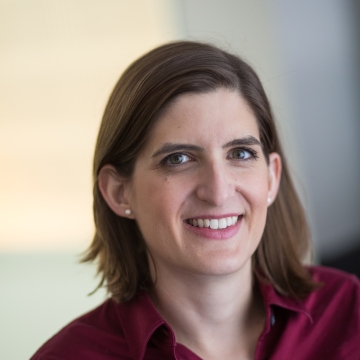
Jennifer M. Kavran
Jennifer Kavran, PhD, MS, MPhil, is a biophysicist who investigates how cells communicate with each other and their environment.

Danfeng Cai
Danfeng Cai, PhD, combines advanced microscopy, genomics, and proteomics to tease out the functions of protein condensates in cells, with a focus on cancer.
Vivien Thomas PhD Scholars
The Vivien Thomas Scholars Initiative (VTSI) is an endowed fellowship program at Johns Hopkins for PhD students in STEM fields. It provides full tuition, stipend, and benefits while also providing targeted mentoring, networking, community, and professional development opportunities. Students who have attended a historically Black college and university (HBCU) or other minority serving institution (MSI) for undergraduate study are eligible to apply. To be considered for the VTSI, you will need to submit a SOPHAS application, VTSI supplementary materials, and all supporting documents (letters, transcripts, and test scores) by December 1, 2024. VTSI applicants are eligible for an application fee waiver , but the fee waiver must be requested by November 15, 2024 and prior to submission of the SOPHAS application.

All full-time PhD students receive the following support for all years of the program: full tuition and fees, individual health insurance, University Health Services fee, vision insurance, dental insurance, and a stipend for living expenses for students who remain in good academic standing. PhD students are required to serve as a teaching assistant for at least one term, in either their 2nd or 3rd year.
Need-Based Relocation Grants Students who are admitted to PhD programs at JHU starting in Fall 2023 or beyond can apply to receive a $1500 need-based grant to offset the costs of relocating to be able to attend JHU. These grants provide funding to a portion of incoming students who, without this money, may otherwise not be able to afford to relocate to JHU for their PhD program. This is not a merit-based grant. Applications will be evaluated solely based on financial need. View more information about the need-based relocation grants for PhD students .
Questions about the program? We're happy to help.
Mike Matunis, PhD PhD Program Director
Roza Selimyan , PhD BMB Executive Director for Academic Affairs and Education Programs
Erika Vaitekunas Administrative Specialist
Compare Programs
- Check out similar programs at the Bloomberg School to find the best fit.
- Master of Science (ScM), Offered by BMB
- Master of Health Science (MHS), Offered by BMB
- Master of Health Science (MHS), Offered by MMI
- Doctor of Philosophy (PhD), Offered by MMI
- Master of Health Science (MHS) in Environmental Health
- Doctor of Philosophy (PhD) in Environmental Health
Molecular and Cell Biology

Doctoral Program
The Department of Molecular & Cell Biology at the University of California, Berkeley offers a Ph.D. program focused on the molecular mechanisms inherent to life. This program integrates research with a modern training curricula, teaching, and career mentorship. Our Department is highly interdisciplinary - comprising the Divisions of Cell Biology, Development & Physiology, Immunology and Molecular Medicine, Molecular Therapeutics, Biochemistry, Biophysics & Structural Biology, and Genetics, Genomics, and Development – and this is reflected in our students and training. The program is also highly collaborative with related programs and Institutes on campus, thus allowing students the flexibility to explore all aspects of modern biological research. Please click on the links below to learn more about our areas of research on the main department website or use the menu at the top to navigate to areas of interest within the graduate program.
Cell Biology, Development & Physiology
Immunology and molecular medicine, biochemistry, biophysics & structural biology, molecular therapeutics, genetics, genomics, evolution, and development.
PhD in Biology

The PhD program in Biology is a research-intensive program that also has a strong focus on teaching, designed to produce top scientists and educators with a broad base of knowledge to tackle the most important biological problems of today. This is accomplished through research training, graduate-level courses, seminars, and teaching experience. Entering students are assigned an advisory committee of three faculty members who work with the student to plan a suitable program based on the student's experience and interests.
PhD students in Biology receive full tuition support for six years, a competitive stipend, health coverage, and receive extensive training in pedagogy, outreach, and communication that prepares them for careers in academia, biotechnology, education, and policy. Students are required to serve as teaching assistants for at least two semesters. Most students complete the requirement for teaching experience in the first year by assisting in the introductory undergraduate biology courses for two semesters.
During the first year, students become familiar with research opportunities in the department by doing short research rotations with various faculty members. This experience in expected to lead to the selection of a research focus for the PhD thesis, and it also sets the stage for cross-disciplinary approaches to the thesis topic that is pursued.
First- and second-year students usually take some graduate courses that are selected in consultation with the advisory committee, in addition to one required course: either Biology 243: Topics in Molecular and Cell Biology; Biology 244: Topics in Evolutionary Ecology; or Biology 246: Topics in Physiology and Animal Behavior.
The department faculty are educators as well as researchers, and the graduate students benefit from this expertise. Graduate students serving as teaching assistants have the opportunity to take a course on teaching and pedagogy to improve their skills, or to become involved with upper level courses in their area of expertise. In addition, we offer a one-month summer program for PhD students interested in contributing to course design and honing their teaching skills via GIFT, the Graduate Institute For Teaching .
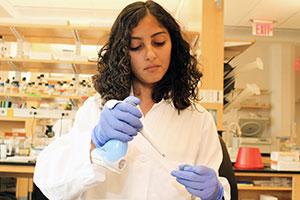
Research Concentrations
Browse the six concentration areas below for recommended programs of study and relevant courses:
- Biology Education Research
- Ecology, Behavior and Evolution
- Global Change Biology
- Genetics and Molecular Biology
- Developmental Biology
- Physiology, Neurobiology and Animal Behavior
Graduate credit for a course requires a grade of B- (B minus) or better. A list of biology department undergraduate and graduate courses can be found by selecting the Courses button from the top bar.
Throughout the year, graduate students benefit from a variety of seminars on current research that are presented by faculty, fellow graduate students, and invited speakers.
Biological Sciences
- PhD Biology
Contact Biological Sciences
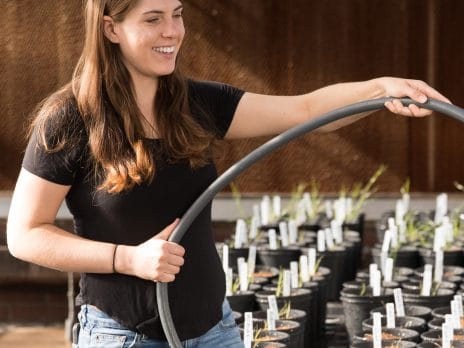
Biology, Doctor of Philosophy
- Available Emphasis Areas:
- Biology Coursework
- Ecology, Evolution and Conservation Biology - Emphasis
This doctoral degree allows advanced students to pursue their content and research skills while studying under faculty specialists in microbiology, botany, genetics, bioinformatics, human biology, ecology, and zoology. The program is enhanced by advanced research facilities that include the Deaver Herbarium, the Electron Microscope Facility, and the nationally prominent Microbial Genetic and Genomics Center, home to powerful research into anthrax, plague, and other bacterial-disease-causing infections.
Degree Info Tab Open
Requirements tab open, overview tab closed, details tab closed, availability tab closed, requirements accordion open.
To receive a Doctor of Philosophy Degree (PhD) at Northern Arizona University, you must complete a planned group of courses, from one or more disciplines, ranging from at least 60 - 109 units of graduate-level courses. Most plans require research, a dissertation, and comprehensive exams. All plans have residency requirements regarding time spent on the Flagstaff campus engaged in full-time study. The full policy can be viewed here.
Overview Accordion Closed
In addition to University Requirements:
- Complete individual plan requirements.
| Minimum Units for Completion | 60 |
| Additional Admission Requirements | Required |
| Dissertation | Dissertation is required. |
| Comprehensive Exam | Comprehensive Exam is required. |
| Oral Defense | Oral Defense is required. |
| Foreign Language | Optional |
| Research | Individualized research is required. |
| Emphasis or Coursework Required | An emphasis or coursework is required for this degree. |
Purpose Statement The Biology PhD program prepares students for research-focused professions in the biological sciences, developing students’ expertise in the empirical foundations of their dissertation area, and collecting, analyzing, interpreting, and presenting data to push forward the forefront of knowledge in their biological field of study. Our faculty members conduct research in the many fields of biology, from the level of single molecules to whole ecosystems. From the first day of entry into our program, students work closely with their faculty mentor, selecting a course of study suited to their future goals and professional interests. The program enables graduates to contribute to the forefront of knowledge in the scientific community, share their knowledge through teaching, or apply it in public service or industry. Students pursuing the emphasis in Ecology, Evolution & Conservation Biology will integrate theoretical and empirical concepts in ecology and evolutionary biology to understand ecological patterns and the mediating processes that drive populations, communities and ecosystems. Students will become familiar with ecological sampling techniques and statistical methodologies necessary to characterize populations, communities and ecosystems over broad geographic regions, and will apply current approaches for identifying and mitigating the effects of invasive species and anthropogenic impacts on threatened and endangered species within the natural ecosystems they inhabit. Student Learning Outcomes Core Biology Outcomes
- Elucidate the major theories, research methods, approaches to inquiry and schools of practice in their biological discipline (genetics, physiology, anatomy, ecology, evolution, cell- or biochemistry, and microbiology), illustrating both the applications and relationships to other biological disciplines.
- Integrate applied, empirical or experimental work into a broader context, incorporating and considering perspectives and methods of other fields of study.
- Apply logical, mathematical or statistical methods most important or appropriate to the exploration of their field of study.
- Identify, select and defend the choice of mathematical or statistical methods or models appropriate to research questions.
- Design and perform empirical or experimental work independently, as well as describing, analyzing, and critically evaluating experimental data.
- Communicate biological knowledge, including results of research undertakings, and the rationale underpinning their conclusions, to specialist and non-specialist audiences clearly and unambiguously.
- Synthesize principal ideas, techniques or methods at the forefront of the field of study.
- Create sustained, coherent arguments or explanations summarizing his/ her work for both general and specialized audiences.
- Provide evidence contributing to, expanding, evaluating or refining the information base within the field of study.
- Articulate and defend the significance and implications of the work in terms of the challenges and trends of their primary field of study.
- Conceive, design, and implement an original scientific project with the purpose of generating new knowledge.
- Articulate the theoretical and empirical foundations of ecology and integrate their application into thesis area.
- Provide coherent summaries and insights regarding current and emerging topics in ecology, evolution and conservation biology for both general and scientific audiences.
- Apply quantitative methods to examine patterns, processes and anthropogenic impacts on terrestrial and aquatic environments.
- Examine the major theories, research methods, and inquiry approaches that scale from physiology to ecosystems.
Details Accordion Closed
Graduate admission information.
The NAU graduate online application is required for all programs. Admission to many graduate programs is on a competitive basis, and programs may have higher standards than those established by the Graduate College. Admission requirements include the following:
- Transcripts.
- Undergraduate degree from a regionally accredited institution with a 3.0 GPA on a 4.0 scale ("A" = 4.0), or the equivalent.
Visit the NAU Graduate Admissions website for additional information about graduate school application deadlines, eligibility for study, and admissions policies. Ready to apply? Begin your application now.
International applicants have additional admission requirements. Please see the International Graduate Admissions Policy .
Additional Admission Requirements
Individual program admission requirements over and above admission to NAU are required.
- Three letters of recommendation
- Personal statement or essay
- All applicants are expected to make email contact with potential faculty members in the department BEFORE APPLYING. Applicants should only apply if a mentor agrees to support the applicant.
- Knowledge of biology at the baccalaureate level.
- An earned thesis-based MS degree in a biological or related science
- Demonstrated research ability by being a responsible author on a scientific, peer-reviewed publication (journal article)
- Have equivalent credentials to the above, which may include considerable relevant research experience, average GRE scores above the 70th national percentile in Verbal, Quantitative, and Writing Ability, experience presenting scientific papers as an author at regional, national, or international scientific meetings, with reference letters attesting to the student's performance and responsibility for the science reported at such venues.
Doctoral Requirements
This Doctoral degree requires 60 units distributed as follows:
- Biology Common Coursework: 6 units
- Electives: 29 units
- Biology Coursework
- Emphasis Core: 4 units
- Breadth Courses: 6 units
- Dissertation Requirement: 15 units
Biology Common Coursework (6 units)
- BIO 503 , BIO 504 (6 units)
Electives (29 units)
- Electives, beyond the bachelor's degree, covering the major principles of biology (29 units)
Biology Coursework or the Ecology, Evolution and Conservation Biology Emphasis Requirement - Select One (10 units)
- Additional Biology coursework and/or electives from one or two related fields, with the recommendation of your research committee.
Ecology, Evolution and Conservation Biology Emphasis (10 units)
Emphasis Core (4 units)
Breadth Courses (6 units) Select one course each from two of the following groups:
- BIO 523 , BIO 580 , BIO 676
- EES 529 or GSP 529
- Other graduate-level coursework in quantitative ecology at NAU, with your advisor's approval.
- BIO 570 , BIO 571 , BIO 573 , BIO 663 , BIO 673
- FOR 504 , FOR 517 , FOR 520 , FOR 543 , FOR 545 , FOR 550 , FOR 551 , FOR 552 , FOR 553 , FOR 560 , FOR 580 , FOR 582 , FOR 604
- Other graduate-level coursework in physiological, population, or community ecology at NAU, with your advisor's approval.
- BIO 507 or FOR 507
- FOR 515 , FOR 544
- Other graduate-level coursework in ecosystem/global ecology at NAU, with your advisor's approval.
Dissertation Requirement (15 units)
- BIO 799 for the research, writing, and oral defense of an approved dissertation.
Please note that you may count only 15 units of dissertation credit toward your degree. However, experience tells us that our doctoral students in Biology end up taking an average of 36 units. This is due to the requirement that you register for BIO 799 for each semester during which you work on your dissertation. In addition, we require that you:
- Have a reading knowledge of one foreign language or skill in statistics.
- Perform satisfactorily on a comprehensive exam in your fifth semester.
- Fulfill Northern Arizona University's residency requirements. (For more information about residency and other requirements that pertain to this degree, see Doctoral Requirements Policy ).
- Pass the oral exam on your dissertation (Dissertation Defense)
Be aware that some courses may have prerequisites that you must also successfully complete. For prerequisite information, click on the course or see your advisor.
Availability Accordion Closed
Mailing address, social media.
Recommended pages
- Undergraduate open days
- Postgraduate open days
- Accommodation
- Information for teachers
- Maps and directions
- Sport and fitness
PhD by Distance Learning
Tom Hampton of the USA recently completed his PhD by Distance Learning. In the video above, Tom talks about his experiences.
Not all projects within Biosciences are suitable for a PhD by Distance Learning, but the following research staff have indicated they may be able to offer a project appropriate for the distance learning programme. Clicking on the name below will take you to their research profile. If the option of a PhD by Distance Learning is one that appeals to you, please contact the relevant member of staff to discuss further.
- Dr Juliet Coates
- Professor John Colbourne
- Dr Aditi Kanhere
- Dr Lindsey Leach
- Dr Nigel Maxted
- Dr Jim Reynolds
- Dr Eugenio Sanchez-Moran
This list is not exhaustive and is subject to change.
Why study by distance learning?
The main advantage of studying by distance learning is the flexibility. Financial and practical implications of moving closer to the campus make distance learning a more feasible option and could allow you to combine study with other commitments, including work and family. Similarly, your research could be related to your area of residence and therefore moving would be detrimental to your capacity to carry out the research.
Is the distance learning route for you?
The distance learning route to PhD study is not for everyone. You have to have a very clear idea of your project and be able to motivate yourself. Undertaking PhD study off campus can sometimes be quite isolating, so the ability to proactively seek out connections from within relevant research communities is important. This route is well-suited to those who have a research project associated with their work or particular interests and where resources are available locally, over via the internet, to support your research e.g. appropriate archives and data collections.
How will I be supported?
You will receive the same level of support and supervision as on-campus students. The only difference is that supervisory sessions will take place via audio and visual communication services such as Skype or Facetime, rather than in person.
What is the cost?
We charge an annual tuition fee which is the same as our standard on-campus PhD but includes:
- Economy class flights to and from Birmingham for the compulsory two-week campus visit in September
- Accommodation at the University for the compulsory two-week campus visit in September
- Economy class flights to and from Birmingham at the end of the study period for the three-day PhD viva examination
- Accommodation at the University for the three-day viva examination
How often will I need to be on campus?
Although you may be able to undertake the majority of your study at an off campus location, you will be fully funded to make one compulsory visit to the University per year of study. This will enable you to meet your supervisory team, undertake intensive research skills training and make a start on your doctoral studies. You will then be invited to attend the University for annual ‘in-person’ meetings which give you the opportunity to interact with other doctoral students both socially and academically, undertake important progress meetings and carry out necessary training. You will also generally be required to be present on campus for your viva voce.
Am I eligible?
Before we can offer you a place it is important that you have agreement from your potential supervisor and that they are satisfied that you will be able to undertake the PhD on an off campus basis. This may mean that slightly different entry requirements apply, such as English language and more extensive research skills training. Agreements will also need to be reached regarding some of the more practical aspects of undertaking the PhD in this way (for example attendance requirements, suitability of the chosen residency etc). It is important that arrangements are discussed early so that all parties involved know what to expect and to ensure you are able to successfully complete your studies.
Can I study by distance learning anywhere?
Distance Learning courses can be undertaken from anywhere in the world, including the UK.
However, it is worth noting that supervisory sessions for Distance Learning students will take place via audiovisual communications, such as Skype or Facetime, rather than in person.
While we have found that these 21st Century methods have proved popular, for those applicants who would prefer to visit the campus for face-to-face meetings with their supervisor, the traditional part-time study option may be more appropriate.
How to apply?
Find the programme that you wish to apply for in our course finder and click on the 'Apply' button.
As part of the application process, we will ask you to provide evidence to demonstrate that you have the time, commitment, facilities and experience to study for a PhD by Distance Learning. Please be prepared to provide evidence, and details, of the following:
- Examples of your postgraduate research experience and ability to work independently e.g. papers/presentations at professional and academic conferences or publications in professional journals or previous completion of an independent research project, etc.
- Full reasons (academic and personal) for registering for the distance learning mode of study rather than by standard full or part-time on-campus options. In particular, how you will be able to carry out your project in your chosen location.
- Access to local library facilities (where needed)
- Access to IT facilities
- Access to communications, including e-mail, and audiovisual communication media e.g. Skype and Facetime
- Access to facilities to support any study-related disability (where appropriate)
Please visit the course finder for a full list of subject areas available to study via distance mode.
Ph.D. Program in Biology
Our graduate program provides students of diverse backgrounds with the opportunity to intensely engage in research in the biological sciences and contribute to the broader scientific community.
Average time to degree: 5.3 years
Percentage of graduates in post-doctoral or permanent positions: 94%
Average publications after completion of program: 3.8 per person
Ph.D. Program
The Department of Biology introduces graduate students to diverse fields of biological science, and provides them with expert guidance to excel in research. The department is invested in training students to become excellent scientists, researchers, science communicators, and instructors. We are a diverse and global community, committed to expanding scientific career opportunities to all. Some of our graduates become academics, whereas others find careers in government, private industry, public policy, or elsewhere (see where recent graduates are now). The ability to communicate ideas and research results clearly and convincingly is key to success in any career.
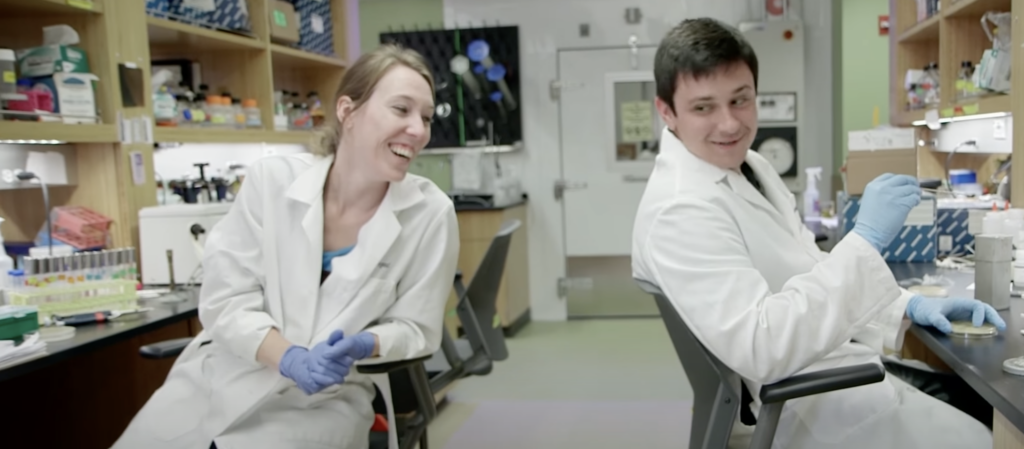
Experience Biology at Georgetown University
Professors and current students share their perspectives on Georgetown’s cutting-edge biology graduate program.
Potential applicants are urged to identify and contact potential research mentors directly before applying. Please refer to the research page and the list of faculty interested in accepting students . Not all laboratories will have open positions available for a new graduate student in a given year.
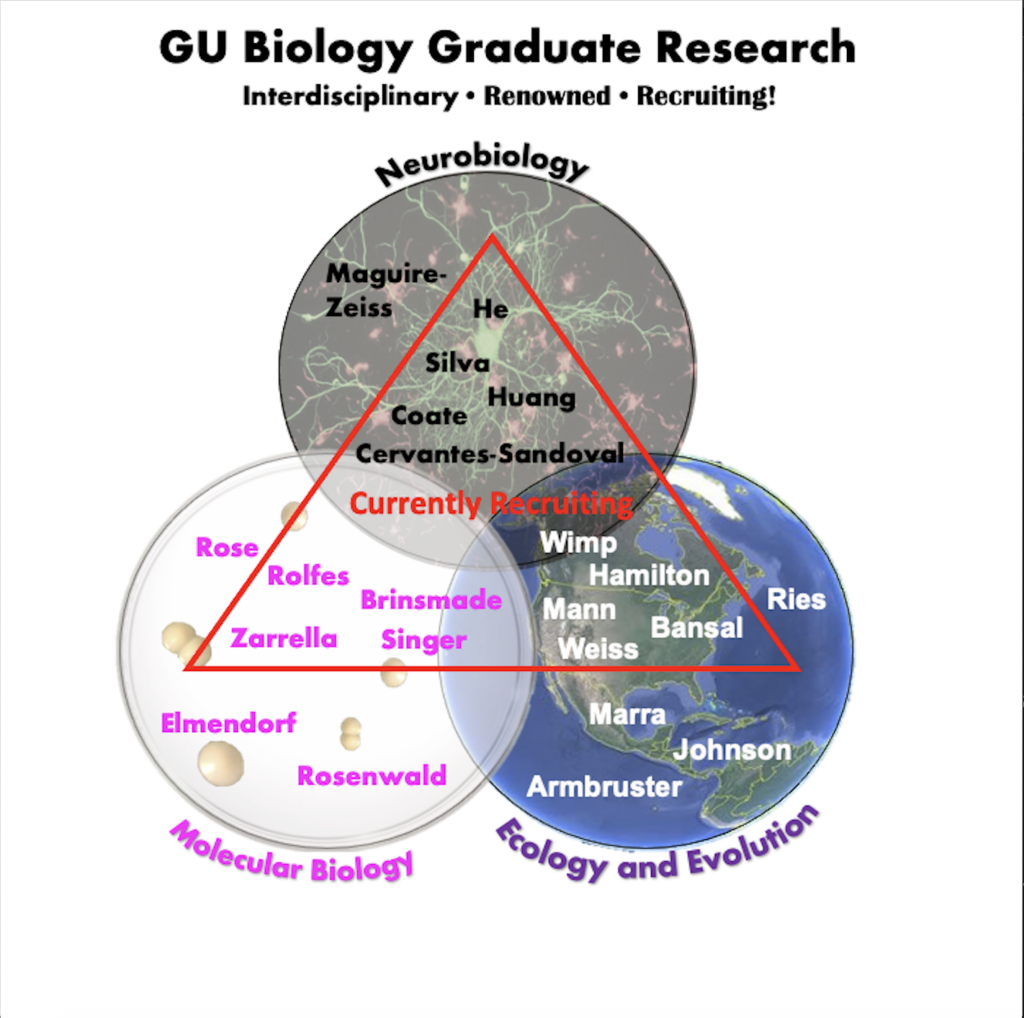
Financial Assistance for PhD Students
students who are accepted into the phd program in biology are guaranteed a minimum of five years of full funding. this funding includes:.
Stipend The stipend for PhD students in Biology is set by the Collective Bargaining Agreement between Georgetown University and the Georgetown Alliance of Graduate Employees ( GAGE ). The current stipend rate is $36,934 for the year. The stipend is paid on a 12-month contract, typically in 26 biweekly paychecks.
Tuition Waiver The Graduate School of Arts & Sciences (GSAS) provides full tuition waivers for all PhD students for the duration of the PhD program.
Health Insurance Health insurance is required. The GSAS provides free student health insurance to all students. The insurance covers doctor’s visits, hospital stays, and prescription drugs. Students may waive this benefit if they prefer a different plan through parents or a spouse.
Dental Insurance The GSAS provides free dental insurance to all students. The insurance covers routine dental care, such as cleanings and exams.
Yates Athletic Facility All students are eligible to use the Yates athletic facility for free. The facility has a gym, swimming pool, and fitness classes.
Parental Leave Graduate student workers are guaranteed six weeks of paid parental leave. This leave can be used to bond with a new child or to care for a sick child.
Medical Leave Graduate student workers are guaranteed six weeks of paid medical leave. This leave can be used to recover from a medical condition or to care for a sick family member.
To learn more about financial assistance for PhD students, please visit the Graduate Funding page. You can read more about what it means to do a PhD in a union-protected graduate program here
Student Quotes
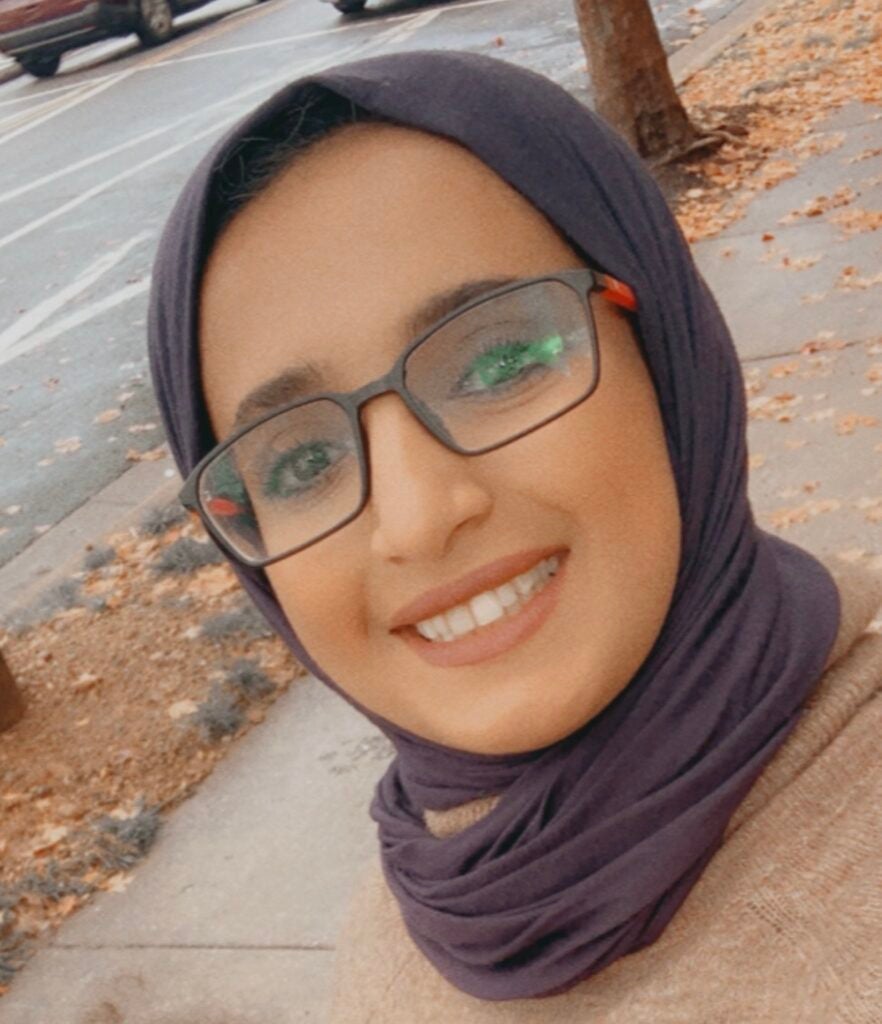
“Until you start your journey in grad school you might not know what you are missing out on. Other than the course work, grad school has been instrumental in inculcating important life values and skills such as confidence, time management, survival, and holding personal and professional relationships in higher esteem. ”
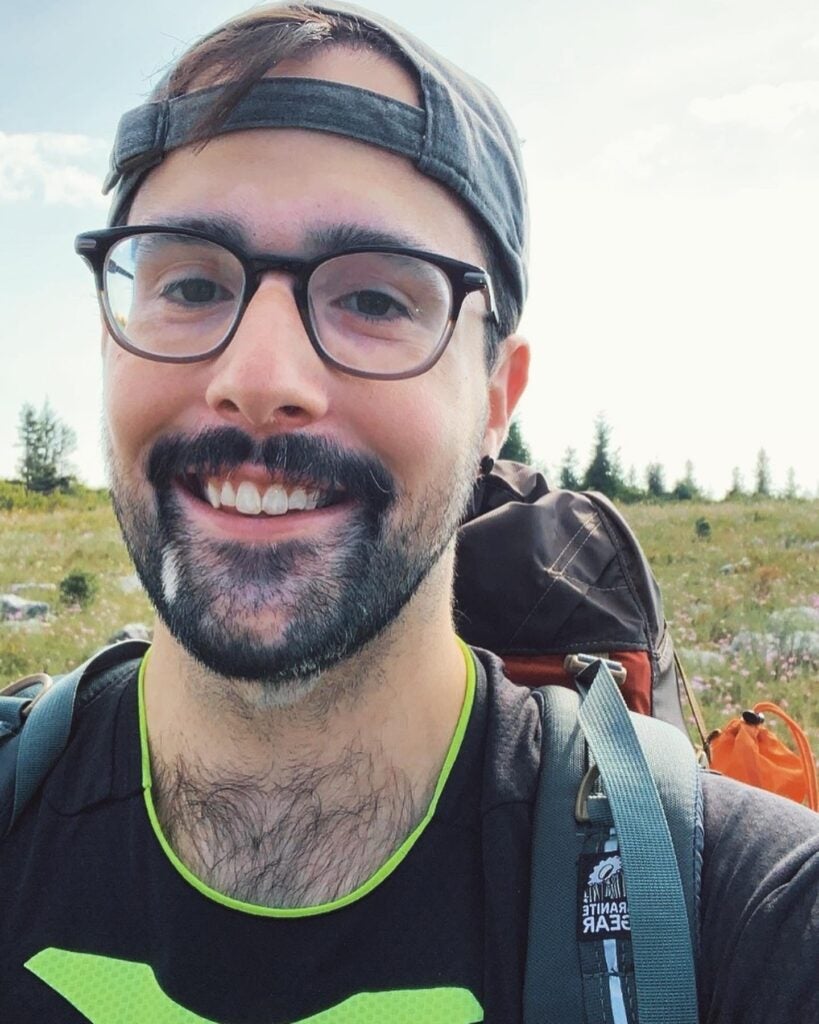
“Studying at Georgetown has enabled me to be a lot more confident in my ability to ask questions and chart my own path in scientific research. My advisor and mentors here at Georgetown have been top quality in terms of both academic and personal support”
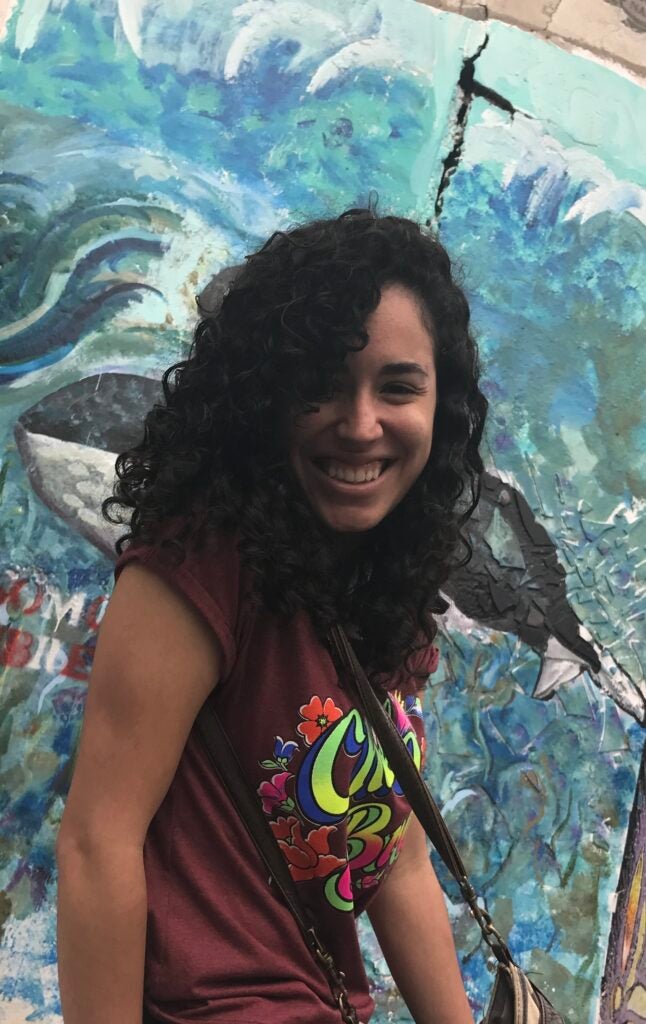
“Georgetown is a place with an environment conducive to learning and professional growth for prospective scientists working towards their graduate degrees and beyond. In this program, I found mentorship and training that foster the critical thinking required to answer the questions I am interested in. I found the multidisciplinary nature of the graduate student body to be engaging and supportive from the beginning of my journey.”
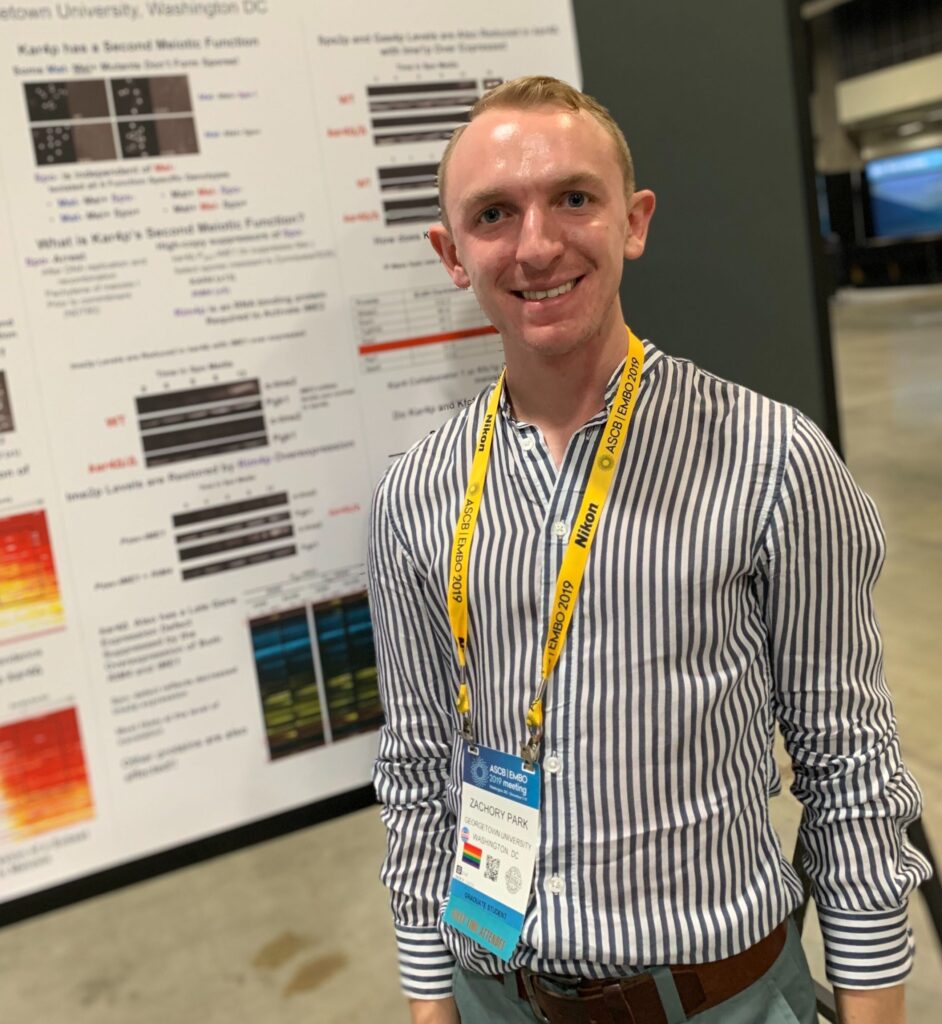
“The breadth of research that goes on in the Bio department really facilitates a broad understanding of biology from the life of single cells to the life of much larger organisms. It really is something unique that you don’t get at other more specific departments and has really helped me think outside of the box with my own work.”
Graduate Research Opportunities
Learn about the research programs that the department of Biology offers and find out which programs are recruiting graduate students.
Graduate Teaching Opportunities
Find out about the many opportunities that are offered to graduate students to develop teaching and mentoring skills.
Graduate Funding Opportunities
Learn about stipend funding and the additional funds from the GU Graduate School offered to help support graduate dissertation research or travel to meetings.

Biology, PhD
- Program description
- At a glance
- Degree requirements
- Admission requirements
- Tuition information
- Program learning outcomes
- Career opportunities
- Contact information
Science, Scientist, approved for STEM-OPT extension, cell, molecular, plant, sols
You can have the largest amount of flexibility in your course choices in a program that complements other, more specialized life science degree programs. Develop your research skills and acquire high research competency in one or more specialized areas while receiving a broad, solid grounding in biological sciences.
The PhD program in biology offers individualized courses of study tailored to students' interests that include laboratory, field and theoretical work. Flexibility in the program is achieved by requiring only one core class, which is a choice between two topics that cover the breadth of the research directions in this program.
Electives are also as flexible as possible and include areas outside of biology. The major goal is to provide students with the opportunity to create an adaptable and general degree program that allows both traditional and interdisciplinary approaches in any area of biology.
This program may be eligible for an Optional Practical Training extension for up to 24 months. This OPT work authorization term may help international students gain skills and experience in the U.S. Those interested in an OPT extension should review ASU degrees that qualify for the STEM-OPT extension at ASU's International Students and Scholars Center website.
The OPT extension only applies to students on an F-1 visa and does not apply to students completing a degree through ASU Online.
- College/school: The College of Liberal Arts and Sciences
- Location: Tempe
84 credit hours, a written comprehensive exam, an oral comprehensive exam, a prospectus and a dissertation
Required Core (3 or 4 credit hours) BIO 514 Statistical Models for Biology (4) or BIO 620 Research Prospectus Writing (3)
Electives (67 or 68 credit hours)
Other Requirements (1 credit hour) BIO 610 Introduction to Responsible Conduct of Research in Life Sciences (1)
Culminating Experience (12 credit hours) BIO 799 Dissertation (12)
Additional Curriculum Information The program is tailored to the needs of the individual student. The plan of study is developed by the student and a supervisory committee consisting of a major professor and three additional faculty members. The electives credit hours are comprised of coursework showing breadth in biology subdisciplines, seminars and research.
An oral comprehensive examination is required in order to advance to candidacy, and a formal defense of the final written dissertation is required prior to graduation.
Applicants must fulfill the requirements of both the Graduate College and The College of Liberal Arts and Sciences.
Applicants are eligible to apply to the program if they have earned a bachelor's or master's degree in biology or a related discipline from a regionally accredited institution.
Applicants must have a minimum cumulative GPA of 3.00 (scale is 4.00 = "A") in the last 60 hours of their first bachelor's degree program, or a minimum cumulative GPA of 3.00 (scale is 4.00 = "A") in an applicable master's degree program.
Applicants must submit the following:
- graduate admission application and application fee
- official transcripts
- academic record form
- personal statement
- curriculum vitae or resume
- three letters of recommendation
- proof of English proficiency
Additional Application Information An applicant whose native language is not English must provide proof of English proficiency regardless of their current residency.
Research experience is desired for entry into this program.
Program learning outcomes identify what a student will learn or be able to do upon completion of their program. This program has the following program outcomes:
- Able to review scholarly literature as they develop specialized expertise in their selected research area.
- Able to perform research that they have designed to address important and challenging questions in the field of biology.
- Able to communicate the findings and originality of their research, both orally and in writing.
Those who have earned a doctorate in biology are prepared for academic careers at every level, from community colleges to research universities. Their skills and knowledge are also valuable for government careers with federal and state agencies responsible for wildlife management and conservation, and for careers in industry and nongovernmental organizations.
Career examples include:
- food, agriculture and health care scientists in academic, private and industrial labs
- principal investigators in government labs and nonprofit organizations
- professors or instructors in universities and colleges
- science teachers in elementary and high schools
- wildlife, animal and conservation scientists
School of Life Sciences | LSA 181 [email protected] 480-965-1768


- Seeking Patient Care?
- Graduate Studies
- Doctoral Programs
- Executive Ph.D. in Biochemistry and Molecular Biology
Executive Ph.D. in Biochemistry and Molecular Biology
Application process.
The Executive Doctor of Philosophy (Ph.D.) degree program in Biochemistry and Molecular Biology is targeted toward full-time professionals working in industry or other research laboratories who are involved in research at their workplace but do not have a Ph.D. These individuals do not need to give up their jobs to enroll in this Ph.D. program.
Research performed at the industrial site will serve as the dissertation research topic. The required courses will be done through distance learning technology. This program is available to professionals who are working in the areas of biochemistry, molecular biology, biotechnology, nanotechnology, and medicine. It is intended to help individuals who are seeking to either move ahead in their field or switch careers altogether. It also fulfills the lifelong learning desire of industrial professionals who wish to further their education at the doctoral level.

Biomedical Nanotechnology Institute

Boston University Academics
Boston University
- Campus Life
- Schools & Colleges
- Degree Programs
- Search Academics
- PhD in Molecular Biology, Cell Biology & Biochemistry
The PhD in Molecular Biology, Cell Biology & Biochemistry (MCBB) is designed to build a solid foundation in related fields in the molecular biosciences through coursework and seminars, and to develop the skills for achieving cutting-edge research accomplishments. The program is based on an interdisciplinary environment and a breadth of approaches and biological interests, including faculty from several departments (e.g., Biology, Biomedical Engineering, Chemistry, Health Sciences). The primary goal of the degree is to prepare students for successful careers in academia, research institutions, or industry (e.g., biotechnology and pharmaceutical industries), or in government as policymakers. The program accepts applicants with degrees in related disciplines where the focus has been on biology, chemistry, biotechnology, biochemistry, or a relevant field.
Learning Outcomes
- Demonstrate academic mastery in the interrelated biological disciplines encompassing at least two of three biological areas: 1) molecular biology, 2) cell biology, and 3) biochemistry, plus in computational analysis.
- Achieve research expertise and complete a body of original research that advances a specific field of study in the molecular biosciences.
- Follow the ethics for appropriate behavior in the scientific discipline.
- Be able to teach and promote the field of biological sciences.
- Be prepared to enter the job market.
Course Requirements
For details on requirements regarding grade point averages, annual reports, and responsible conduct in research, please see the MCBB graduate program guide .
A total of 64 credits is required. Of these, a minimum of 32 credits must derive from lecture or seminar courses, and a minimum of 12 credits from elective courses. Remaining coursework normally consists of research credits. Incoming students with previous graduate credits, including from a master’s degree at a different institution, may apply to transfer course credits toward the PhD degree. Course requirements are as follows:
- CAS MB 583 Progress in Cell & Molecular Biology (first semester)
- CAS MB 584 Progress in Cell & Molecular Biology (second semester)
- GRS BI 735 Advanced Cell Biology
- GRS BI 753 Advanced Molecular Biology
- GRS MB 697 A Bridge to Knowledge: A Practical Seminar for First-Year Graduate Students
- GRS MB 721 Graduate Biochemistry or MB 722 Advanced Biochemistry
- A graduate-level quantitative course from a list of options
- 12 credits in elective courses
Language Requirement
There is no foreign language requirement for this degree.
Qualifying Examination
This examination is designed to test the student’s general knowledge encompassing molecular biology, cell biology, and biochemistry, as well as the student’s grasp of the proposed research project and ability to synthesize findings and propose and experimentally test hypotheses. It consists of an oral qualifying exam where the student will defend a written research proposal. The exam is administered by a committee of no fewer than five faculty, at least four of whom must be members of the MCBB program (including the thesis advisor). The qualifying exam should be completed within 2.5 years of matriculation into the MCBB PhD program. Any student failing this examination, at the discretion of the examination committee, may have the opportunity to take it again. Failure of the second examination will be grounds for automatic dismissal from the PhD program and the loss of any further financial aid, although the student may still be eligible for the MA provided that those degree requirements are met.
Dissertation and Final Oral Examination
Candidates shall demonstrate their abilities for independent study in a dissertation that presents original research or creative scholarship. A prospectus for the dissertation must be approved by the readers, the Director of Graduate Studies, and the Department Chair/Program Director. Candidates must pass a final oral examination in which they defend their dissertation as a valuable contribution to knowledge in their field and demonstrate a mastery of their field of specialization in relation to their dissertation. All portions of the dissertation and final oral examination must be completed as outlined in the GRS General Requirements for the Doctor of Philosophy Degree .
Teaching Requirement
The PhD program requires a minimum of two semesters of teaching during a graduate student’s career.
Students electing to leave the PhD program may leave with a master’s degree if they have completed their core course requirements, have obtained 32 credits, and have passed their Qualifying Exam, or have otherwise satisfied the requirements of the master’s degree .
Related Bulletin Pages
- Graduate School of Arts & Sciences Departments
- Graduate School of Arts & Sciences Courses
- Abbreviations and Symbols
Beyond the Bulletin
- Molecular Biology, Cell Biology & Biochemistry Program
- Graduate School of Arts & Sciences
- Graduate Admissions
- Graduate Financial Aid
- BA/MA Program
- Master’s Degree Requirements
- PhD Degree Requirements
- African American Studies
- American & New England Studies
- Anthropology
- Archaeology
- Bioinformatics
- Biostatistics
- Classical Studies
- Cognitive & Neural Systems
- Computer Science
- Creative Writing
- Earth & Environment
- Editorial Studies
- History of Art & Architecture
- Latin American Studies
- Linguistics
- Literary Translation
- Mathematics & Statistics
- MA in Molecular Biology, Cell Biology & Biochemistry
- Neuroscience
- Pardee School of Global Studies
- Playwriting
- Political Science
- Preservation Studies
- Religious Studies
- Romance Studies
- Sociology & Social Work
- Statistical Practice
- African Studies Certificate
- Asian Studies Certificate
- Advanced Biogeoscience Certificate
- Holocaust, Genocide & Human Rights Studies Certificate
- Latin American Studies Certificate
- Linguistics Certificate
- Museum Studies Certificate
- Muslim Studies Certificate
- Teaching Language, Literature & Film Certificate
- Teaching Writing Certificate
- Women’s, Gender & Sexuality Studies Certificate
- Departments
- Research Centers & Institutes
Terms of Use
Note that this information may change at any time. Read the full terms of use .
related websites
Accreditation.
Boston University is accredited by the New England Commission of Higher Education (NECHE).

- © Copyright
- Mobile Version
PhD in Biology and Biotechnology
As a student in WPI’s PhD in Biology and Biotechnology program, you will benefit from close mentorship by dynamic faculty who encourage creativity and inquisitiveness.
Value Proposition Description
Enabled by a world-class research infrastructure, students in our competitive program explore their passion for discovery while driving cutting-edge, hypothesis-driven research. You will work alongside interdisciplinary teams of WPI faculty, peers, and industry partners to make an impact in your field and explore topics that matter to you, from cancer biology and immunology research to studies of brain plasticity and pollinator decline.

Through our well-rounded PhD in Biology and Biotechnology, you will delve into immersive research in biology and biotechnology while also sharpening your professional and pedagogical knowledge and skills. You will take core courses covering professional ethics, grant writing, and experimental design, and hone your communication skills by participating in department-wide research presentations. You may also take part in supervised teaching experiences and discuss interdisciplinary research initiatives in our Journal Clubs.
Students complete a qualifying exam by the end of the second year of study and round out required coursework with electives. Completion of PhD studies concludes with the preparation of a written thesis and successful oral defense.
To treat many infectious diseases, including the global scourge of tuberculosis, doctors must do battle with a wily adversary, bacteria. Unfortunately for afflicted patients, bacteria have also acquired strategies for thwarting attacks from the immune system and the onslaught of antibiotic drugs. We need to know more about the strategies bacteria use to survive stresses. Biology and biotechnology professor, Scarlet Shell, is seeking to do just that by probing the molecular changes that underlie these mechanisms.
WPI's Department of Biology and Biotechnology is home to a diverse and dynamic faculty body that employs cutting-edge research to explore and understand research topics at the intersection of biology and technology. You will work alongside them as you make your own discoveries in these research areas:
- cancer cell biology
- cognition and behavior
- cytoskeletal dynamics
- drug resistance
- epigenetics and gene regulation
- infectious diseases
- neuronal migration and degeneration
- regenerative medicine
- signal transduction mechanisms

Grad students work closely with faculty and with each other. The opportunity for potential brings new ideas to the forefront and enhances the work everyone does here.
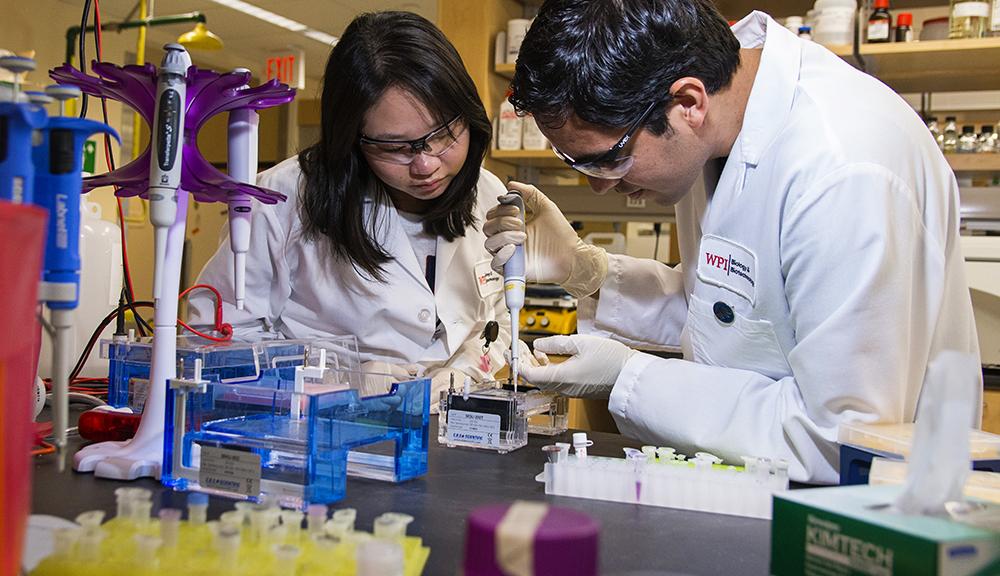
Students in WPI’s BBT program have access to the state-of-the-art labs and multidisciplinary collaborations in the Life Sciences & Bioengineering Center at Gateway Park.

Well-equipped BBT facilities mean you’ll be supported in your research endeavors whether that involves an AAALAC-accredited vivarium with surgical suites, NMR, or a greenhouse.

WPI’s biology and biotechnology graduate degree programs are rigorous yet flexible to provide students with the appropriate backgrounds in both the theory of biology and the practice of biotechnology.

Work in WPI’s biology and biotechnology labs has real-world applications that impacts problems on a human scale.
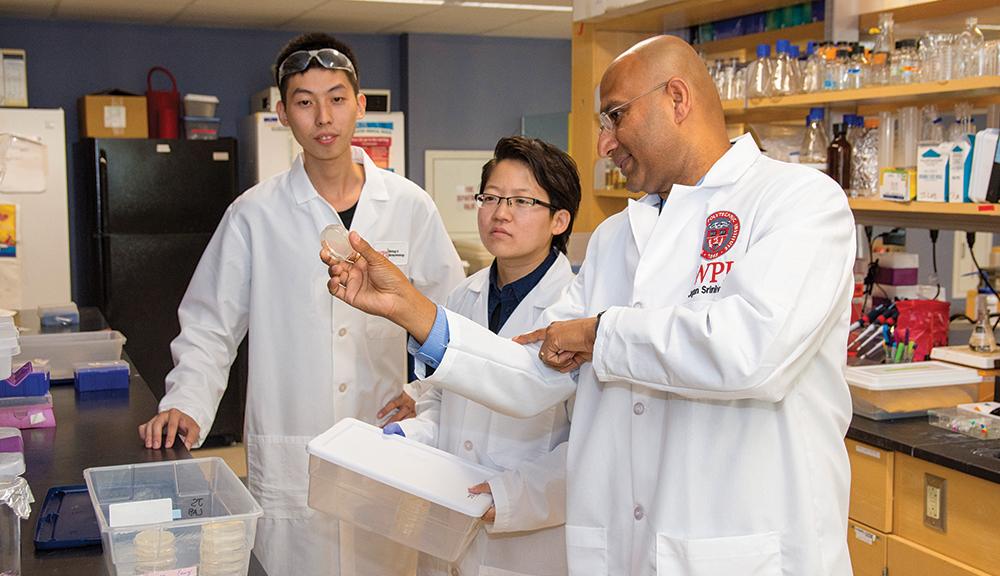
The BBT program is rigorous, flexible, and comprehensive, so students are prepared for whatever the next step in their career path brings.
PhD candidates are encouraged to review the department's faculty pages to identify potential advisors.
You will have access to state-of-the-art equipment in WPI’s Life Sciences and Bioengineering Center, a research complex where an open-plan lab and presence of biotech companies encourage interdisciplinary collaborations. Facilities include an analytical instrumentation core equipped for NMR, Mass Spec, X-Ray Crystal, and qPCR analysis; imaging core with advanced microscopes for point-scanning confocal, spinning disk confocal, and TIRF microscopy; and AAALAC-accredited vivarium.
Faculty Profiles
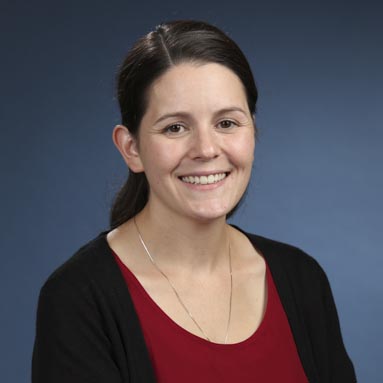
Work in my lab is focused on defining the cellular mechanisms that maintain genome stability in normal cells and understanding how these pathways are corrupted in cancer cells.
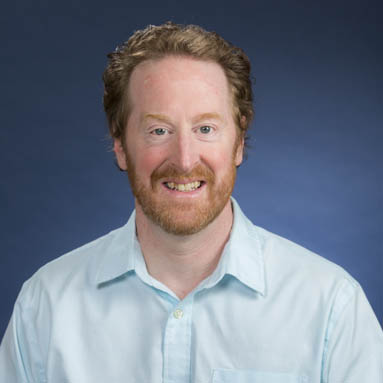
Defining signaling pathways that program cellular diversity is one of the foremost problems in biology and is central to my research interests. In the lab we use molecular, genetic, and biochemical approaches to characterize the function of these pathways and to gain insight into their role in disease. To date, the lab has focused on the Epidermal Growth Factor Receptor network, a principal therapeutic target for a variety of human cancers.
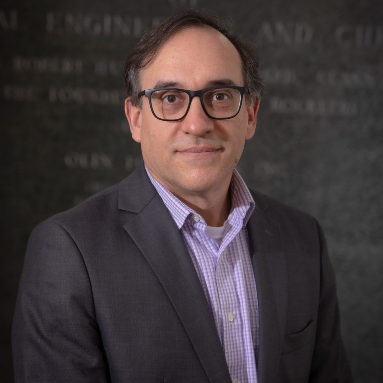
I deeply enjoy teaching, in particular conveying the important roles played by plants. It is a great reward when my students realize that plants are more complex and interesting than they anticipated, and they want to learn more. I enjoy that students at WPI are open about thinking in new ways; this critical thinking is the result of intense project-based learning.
Prof. Weathers is an internationally recognized expert on Artemisia annua and artemisinin, having worked with the plant and its phytochemicals including the antimalarial drug, artemisinin, for >25 years. She is a Fellow of AAAS and SIVB, won many awards, given many national and international presentations, reviews manuscripts for many journals and proposals for many national and international funding agencies. She is an Associate Editor for multiple journals. Her lab was the first to genetically transform A. annua.
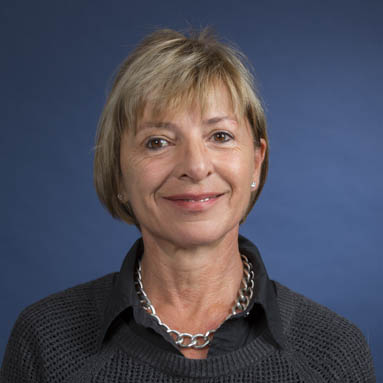
Our lab investigates the molecular basis of phenotype switching in human fibroblasts that can be modulated using defined extracellular stimuli. We evaluate the role of oxygen and growth factor FGF2 isoforms independently and in combination in order to identify key molecular mechanisms and pathways, some of which closely mimic mechanisms described in human embryonic stem cells. Extended lifespan of these cells in culture also offers us a model for investigation of molecular mechanism that are regulating cell cycle in the context of both aging and cancer.
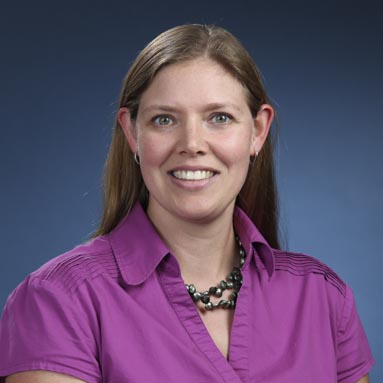
Research in my laboratory addresses questions in the field of evolutionary ecology and environmental biology, and typically combines field work and laboratory studies. Current projects focus on two disciplines.
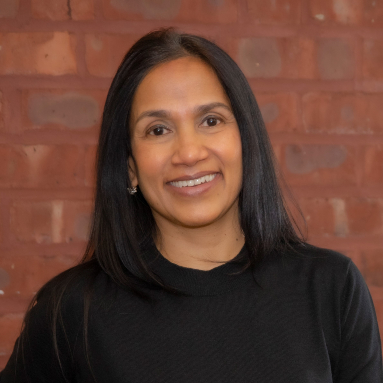
A member of the WPI faculty since 2004 and chair of the Department of Biology and Biotechnology since 2022, Reeta Rao is a leader in the field of molecular genetics and genomics. Her primary research activities are focused on emerging infectious diseases, specifically understanding and managing fungal diseases. Students and research associates in her laboratory are trained to use a variety of biochemical, molecular-genetic, and genomic tools to study host-microbe interactions to explore fungal virulence strategies and identify novel therapeutics in a high through
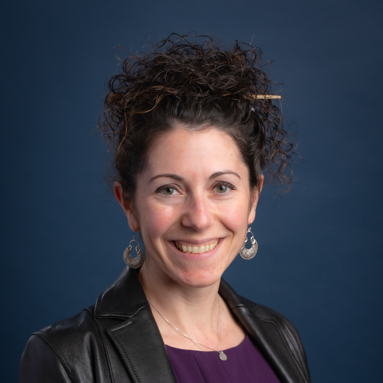
I have a passion for understanding how living systems work, as well as for sharing my love of biology and research with the next generation of scientists and informed citizens.
The central goal of my lab is to understand the regulatory mechanisms that underlie mycobacterial stress tolerance. We combine genetics, genomics, transcriptomics and biochemistry to understand how mycobacteria respond to, and ultimately survive, stressful conditions.
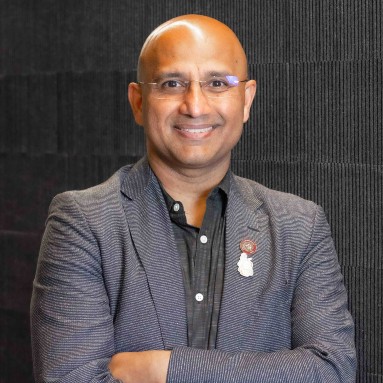
It has been my lifelong dream to become a professor in the field of Biology. Being a faculty member provides a great opportunity to teach and interact with students. Students by nature are highly inquisitive and motivated, and as teachers, we have the responsibility to guide our students to explore and think in new ways. I believe that teaching is a two-way interaction between teachers and students. I come from India and my parents, both of whom were teachers, taught me to strive for excellence in my scholarly pursuits.
- PhD Student
Refer a Friend
Do you have a friend, colleague, or family member who might be interested in Worcester Polytechnic Institute’s (WPI) graduate programs? Click below to tell them about our programs.
Earn a Master’s Degree in Biology & Biotechnology First
Are you interested in making advanced discoveries about living organisms in a robust community of like-minded researchers, but need your master’s to get there? Consider earning a master’s in biology and biotechnology where you’ll participate in cutting-edge laboratory training and gain professional training in areas like experimental design, ethics, and more. Do you prefer advancing a career in the biotech industry from making cross-functional decisions to gaining expertise in bio-production? Our online master’s in biotechnology is a skills-focused program perfect for students who are working professionals looking to study part-time. Maybe you have a strong foundation in computer science and statistics? Consider earning a master’s in bioinformatics and computational biology which dives into leveraging biological data to improve health care.
Get Started with a BS in Biology & Biotechnology or a Minor in a Related Field
If you’re interested in the field but need your initial degree, a bachelor’s in biology & biotechnology is the first step. This degree introduces you to how the theory of biology is put into practice with biotechnology. If your interest lies in gaining enough information to use in a different discipline or practice, WPI has minors that will deliver the skills and knowledge you seek. A minor in biology is an excellent addition to your academic program and will be relevant in many industries including biomechanics, big data, or personalized medicine. Or maybe you’re seeking a global perspective. WPI’s interdisciplinary minor in global public health examines biological, social, political, environmental, and economic influences on the health of diverse and varied populations.
WPI is proud to be the recipient of not one, but two National Science Foundation Research Traineeship programs. The programs provide exceptionally talented graduate students with specialized training and funding assistance to join careers at the forefront of technology and innovation. The programs are for graduate students in research-based master's and doctoral degree programs in STEM. Learn more .
The BioPoint Program for Graduate Students has been designed to complement traditional training in bioscience, digital and engineering fields. Students accepted into one of the home BioPoint programs will have the flexibility to select research advisors and take electives in other departments to broaden their skills. BioPoint curriculum is designed to be individual, interactive, project-focused and diverse, and includes innovative courses, seminars, journal clubs and industrial-based projects. Learn more .

- Open positions
- Research Staff
- Alumni & Collaborations
- Software packages
- Current Assembly Projects
- Older Assembly Projects
- Metagenomic Databases
- Ph.D. Programs
- JHU courses
- Summer Internships
- Consulting Core
Information for prospective Ph.D. students in Computational Biology or Bioinformatics
The Ph.D. programs in Computational Biology at Johns Hopkins University span four Departments and a wide range of research topics. Our programs provide interdisciplinary training in computational and quantitative approaches to scientific problems that include questions in genomics, medicine, genome engineering, sequencing technology, molecular biology, genetics, and others.
Our students are actively involved in high-profile research, and have developed very widely-used bioinformatics software systems such as Bowtie , Tophat , and Cufflinks . and the more-recent systems HISAT and Stringtie (for RNA-seq alignment and assembly) and Kraken (for metagenomic sequence analysis). The work they do with Hopkins faculty prepares them to go on to postdoctoral and tenure track faculty positions at top-ranked universities including (in recent years) Harvard, the University of Washington, Carnegie Mellon, the University of Maryland, and Brown.
Students in computational biology at Hopkins can enroll in one of four different Ph.D. programs. These include Biomedical Engineering, ranked #1 in the nation; Biostatistics, also ranked #1 in the nation; Biology, ranked #6 in the nation; and the rapidly growing Computer Science Department, ranked #23 in the nation. Hopkins is also ranked #4 in the nation in Bioinformatics, a ranking that just started appearing in 2022.
CCB faculty have appointments in each of these programs, and some of us maintain appointments in multiple programs. To determine which program fits your interests and background, browse the course lists below. Each program has a separate application process; please apply specifically to the departments you're interested in. Applications to multiple programs are permitted, but if you're not certain, we encourage you to contact potential faculty advisors before you apply. Wherever you apply, make it clear that your interest is Computational Biology.
Sample Course Offerings for Ph.D. students in Computational Biology
Department of biomedical engineering, whiting school of engineering.
The Johns Hopkins Department of Biomedical Engineering (BME), widely regarded as the top program of its kind in the world and ranked #1 in the nation by U.S. News , is dedicated to solving important scientific problems at the intersection of multiple disciplines and that have the potential to make a significant impact on medicine and health. At the intersection of inquiry and discovery, the department integrates biology, medicine, and engineering and draws upon the considerable strengths and talents of the Johns Hopkins Schools of Engineering and Medicine. See the BME Ph.D. program website for many details.
Department of Computer Science, Whiting School of Engineering
The faculty represent a broad spectrum of disciplines encompassing core computer science and many cross-disciplinary areas including Computational Biology and Medicine, Information Security, Machine Learning, Data Intensive Computing, Computer-Integrated Surgery, and Natural Language Processing.
Ph.D. program
A total of 8 courses are required, and a typical load is 3 courses per semester. See the CS Department website for details. For a look at courses that might be included in Ph.D. training, see this page , though note that it is not a comprehensive list. For the Computer Science Ph.D., 2 out of the required 8 classes can be taken outside the Department. These may include any of the courses in the BME, Biostatistics, and Biology programs listed on this page.
Department of Biostatistics, Bloomberg School of Public Health
Johns Hopkins Biostatistics is the oldest department of its kind in the world and has long been considered as one of the best. In 2022, it was ranked #1 in the nation by U.S. News .
All students in the Biostatistics Ph.D. program have to complete the core requirements:
- A two-year sequence on biostatistical methodology (140.751-756)
- A two-year sequence on probability and the foundations and theory of statistical science (550.620-621, 140.673-674, 140.771-772);
- Principles of Epidemiology (340.601)
In addition, students in computational biology might take:
- 140.776.01 Statistical Computing (3 credits)
- 140.638.01 Analysis of Biological Sequences (3 credits)
- 140.644.01 Statistica machine learning: methods, theory, and applications (4 credits)
- 140.688.01 Statistics for Genomics (3 credits)
Further courses might include 2-3 courses in Computer Science, BME, or Biology listed on this page.
Department of Biology, Krieger School of Arts and Sciences
The Hopkins Biology Graduate Program, founded in 1876, is the oldest Biology graduate school in the country. People like Thomas Morgan, E. B. Wilson, Edwin Conklin and Ross Harrison, were part of the initial graduate classes when the program was first founded. Hopkins is ranked #6 in the nation in Biological Sciences by U.S. News
Quantitative and computational biology are an integral part of the CMDB training program. During the first semester students attend Quantitative Biology Bootcamp, a one week intensive course in using computational tools and programming for biological data analysis. Two of our core courses - Graduate Biophysical Chemistry and Genomes and Development - each have an associated computational lab component.
Ph.D. in Cell, Molecular, Developmental Biology, and Biophysics (CMDB):
The CMDB core includes the following courses:
- 020.607 Quantitative Biology Bootcamp
- 020.674 Graduate Biophysical Chemistry
- 020.686 Advanced Cell Biology
- 020.637 Genomes and Development
- 020.668 Advanced Molecular Biology
- 020.606 Molecular Evolution
- 020.620 Stem Cells
- 020.630 Human Genetics
- 020.640 Epigenetics & Chromosome Dynamics
- 020.650 Eukaryotic Molecular Biology
- 020.644 RNA
Students in computational biology can use their electives to take more computationally intensive courses. You have considerable flexibility to design a program of study with your Ph.D. advisor.

The Center for Computational Biology at Johns Hopkins University
Jump to main content

Doctorate of Biological Education
- College of Natural and Health Sciences
- Graduate Programs
Contact: Dr. Lauryn Benedict, 970-351-3364 (telephone), [email protected] (e-mail).
University catalogs: http://unco.smartcatalogiq.com/
Make new discoveries and participate in the creation of novel information with leading educators and scientists at the School of Biological Sciences at UNC! This unique program leads to a Doctorate of Philosophy degree in Biological Education. Become a multifaceted scholar and educator with a solid background in biology and teaching of biology by working closely with our faculty to develop and advance your skills in teaching and research. This degree program is offered at the main UNC campus in Greeley, Colorado.
How does this degree program work?
The degree program specializes in training biologists to be experts in their disciplines and outstanding college biology teachers. This is accomplished through the completion of course work, a dissertation research project, and a supervised teaching experience. Before beginning this program, you should identify a potential faculty research mentor (or mentors) from among the doctora research faculty in the School of Biological Sciences. Together with your research mentor, you will develop a program of research that focuses on your interests and complements the expertise of the faculty, culminating in the production of the PhD dissertation. All dissertations represent rigorous research in biology or biology education.
In the Ph.D. degree program, you will develop expertise in the concepts, reasoning, and skills of doing science and you will develop expertise in the principles and methods of teaching biology (e.g., pedagogy). Your training will give you a well-rounded skill-set and the expertise to seek a career as an independent scientist, a college biology teacher, or both! For this reason, our Ph.D. degree is awarded in the area of Biological Education. The graduates of our doctoral program have found employment in teaching and research positions. Many of our students have multiple job offers even before they graduate, and we can do the same for you!
Who is this degree program for?
This degree is appropriate for inquisitive and motivated students who already possess a Bachelor's and/or Master's degree in the sciences and who want the requisite training appropriate for a professional career in teaching, basic and applied research, advocacy, government, biotechnology or other advanced scientific positions. After completing their Ph.D.s, many of our graduates have accepted postdoctoral positions in related fields, academic positions in higher education, and advanced positions in government and private industries.
Degree requirements
This degree requires completion of 64 credits of study, including both scheduled classes and one-on-one courses tailored to individual needs and programs. The UNC catalogs contain the official descriptions and requirements of all programs at the University of Northern Colorado. In addition, Ph.D. students are required to develop and teach a full semester course under the supervision of our faculty. The degree culminates with the presentation of the student’s research in a public defense of the dissertation. Chapter(s) from the student’s dissertation are expected to be published in peer-reviewed journals.
Applying to the program
Deadlines, program requirements, and application instructions
In addition to information about yourself and your academic history, applicants are asked to provide letters of recommendation, a CV or resume, and a letter of intent. The following sections offer advice on how to maximize the impact of those documents.
Reference letters
Letters of recommendation (also called letters of reference) are extremely important to your application. Choose the people that you ask to write these letters thoughtfully. Letter writers should be able to comment on your potential for successful graduate work from a position of experience. Typically, they will be academic faculty or work supervisors that have knowledge of your academic or scholarly performance and other attributes relevant to success in graduate school.
- A statement of how the person knows you and for how long
- An indication of the person's professional expertise
- Comments on your intellectual strengths, motivation, creativity, time-management skills, work ethic, collegiality, and ability to handle stress and work independently
- Comments on your writing and verbal communication skills
- An assessment of your potential and abilities relative to others at your level of education and experience
- Ask each potential recommender if they are willing to act as a professional reference on your behalf. If they decline your request, move on.
- Be sure to let each potential recommender know the deadline for submission of the recommendation, and allow sufficient lead time for them to write and submit a strong letter.
- Provide your recommender the list of expectations (above) for what should be included in the letter.
- Supply a copy of your curriculum vitae or resume to each recommender to refresh their memory about your past education and achievements. This is particularly important if you haven't been in touch with them for a while.
- Supply a copy of your letter of intent to each recommender. This will help them to understand why you are applying to graduate school and what you want to do with your advanced education.
Your curriculum vitae or resume
You may choose to provide either a curriculum vitae or a resume. This document should summarize your preparation and experience relevant to graduate study in biological sciences. A curriculum vitae is most appropriate for applicants with career goals in academia, while a resume might be more appropriate for currently working professionals. CVs and resumes will be reviewed equivalently and with reference to the career goals that you outline in your letter of intent. Find specific advice about what to include on a CV or resume here .
The letter of intent
At a minimum, your letter of intent should include the following:
- Your academic experience, interests and preparation
- Background qualifications for the program
- Your career goals and how this degree will help you to achieve those goals
- The names of faculty members with whom you are interested in working
- A statement indicating whether or not you are seeking a graduate teaching assistantship (see below)
Funding options to pay for school
There are several options available to you for obtaining living expenses and tuitionwhile pursuing your graduate education. These are:
- Graduate teaching assistantship (TA): A teaching assistantship is the most common mechanism used by UNC biology graduate students for earning an income while working on a degree. Teaching Assistantships pay a stipend and cover tuition costs. See this page for more information. Teaching responsibilities vary, but students typically teach undergraduate laboratory sections in an area related to their program of study.
- Graduate research assistantship (GRA): Research assistantships are available through individual faculty members (typically the research mentor) who have obtained external grant funding to pay a student to work on one of their research projects. Contact individual faculty members to inquire if they have GRA funding available.
- Scholarships: These are typically awarded based on merit. To be eligible for most scholarships, you must have completed the financial aid application with the University, even if you don't expect to receive financial aid of any other type.

Contact UNC
Social media.
- UNC Overview
- Awards & Accolades
- Organizational Chart
- Strategic Plan
- Accreditation
- Student Consumer Information
- Sustainability
- Accessibility Statement
- Prehealth advising
- Forms and Instructions
- Research seminars
Page Last Updated: Today | Contact for this Page: Nathan Tran
Privacy Policy | Affirmative Action/Equal Employment Opportunity/Title IX Policy & Coordinator

Undergraduate
The Bachelor of Liberal Arts degree is designed for industry professionals with years of work experience who wish to complete their degrees part time, both on campus and online, without disruption to their employment. Our typical student is over 30, has previously completed one or two years of college, and works full time.
Students enrolled in the Master of Liberal Arts program in Biology will learn how to apply critical thinking to real-world scenarios in the life sciences while exploring cutting-edge research and theory. Students gain deeper insight into a range of biological fields, such as molecular biology, genetics, genomics, cell biology, neurobiology and behavior, and ecology.

Doctor of Philosophy (Ph.D.) in English
Learn more about lu.
By submitting contact information through this form, I agree that Liberty University and its affiliates may call and/or text me about its offerings by any phone number I have provided and may provide in the future, including any wireless number, using automated technology.
Message and data rates may apply. For additional information, text HELP to 49595 or 49596. You may opt-out at any time by sending STOP to 49595 or 49596. Visit for Terms & Conditions and Privacy Policy .
15 colleges and schools
350+ degrees on-campus
600+ degrees online
20 NCAA Div. 1 Sports
Enhance Your Knowledge of Literary Theory, Research, and Writing with Liberty’s Ph.D. in English
Are you looking to deepen your understanding of literature, textual analysis, and the English language? Liberty University’s online Doctor of Philosophy (Ph.D.) in English is designed to help you do just that. This program gives you the chance to engage with complex texts, develop original research, and contribute to scholarly discussions in English studies.
Our online doctorate in English offers a comprehensive exploration of literature and major authors from a variety of time periods as well as the historical development of the English language. Throughout the program, you can hone your analytical skills and prepare to contribute innovative research to the existing body of academic knowledge, potentially influencing both scholarly and public discourse.
This program may be a great fit if you aspire to teach English, literature, or related subjects at the collegiate level. You can not only enrich your own understanding of important texts but also become equipped to guide the next generation of college students through studies in literary theory, writing, and more.
What Will You Learn in Liberty University’s Doctorate in English Online?
- American and British literature
- Christian literary tradition and major Christian authors
- Literary theory and advanced textual analysis
- Methods and materials of research
- Origin and evolution of English
In addition to taking core English classes, you’ll have the ability to customize your education through elective courses. That way, you can pursue specialized interests and topics that align with your academic and career goals. Your studies will culminate in the completion of a dissertation, where you will conduct research and work to contribute new knowledge to the field of English. The dissertation process gives you an opportunity to showcase your expertise and lay a strong foundation for your future academic or professional endeavors.
Potential Careers for Graduates of Our Ph.D. in English Online Program
- Literary agent
Benefits of Pursuing Your Doctorate in English Online with Liberty University
As a leader in distance education since 1985, we understand what it takes to create a flexible and affordable education for busy people. Since we have been investing in distance and online learning for decades, our experience has taught us how to streamline our degree options so you can focus on what really matters to you. While many schools offer online degrees, we believe Liberty stands out.
Here’s what sets us apart:
- We are recognized by multiple institutions for our academic quality, affordability, and accessibility . Our commitment to excellence also helped us rank in the top 10% of Niche.com’s best online schools in America . Earning your online degree from a nonprofit university with this kind of recognition can help set you apart from others in your field.
- The majority of tuition for undergraduate, graduate, and doctoral programs has not increased in 9 years. While many other online colleges have raised tuition, Liberty has been able to keep costs low as a nonprofit university.
- Liberty University is accredited by the Southern Association of Colleges and Schools Commission on Colleges (SACSCOC).
- We want to provide you with the freedom to balance your studies with personal and professional commitments, which is why our Ph.D. in English is offered 100% online.
Military Tuition Discount
We want to help you find the doctoral degree you want — at a price you’ve earned. As a thank-you for your military service, Liberty University offers eligible current and former service members like you or your spouse multiple pathways to earn a doctoral degree for only $300/credit hour . Here’s how:
- If you’re earning or have earned a master’s degree through Liberty, you automatically qualify for the low price (when you begin within 2 years of your master’s completion).
- If you haven’t earned a graduate degree through Liberty, our Executive Certificate program allows you to pay only $300/credit hour for a postgraduate certificate that can stand alone or potentially count as the first 21 hours of a related doctoral degree. Then pay just $300/credit hour for your doctorate. Learn more!
Credit Hours

Available Online
100% online, 8-week courses
Transfer Credits
Transfer in up to 50% of the degree total
Next Start Date
Aug 19, 2024
Accreditation
Liberty University is accredited by SACSCOC
Areas of Interest
Choose your area of Interest:
Training Champions for Christ
Liberty’s promise to you is an education that expertly brings knowledge and faith together. Here, education is designed around you. It connects you to people and opportunities that help you develop the skills and confidence you’re looking for. At Liberty, you’ll find the knowledge, experience, and mentorship you want to make your career — and life — a fulfilling one.

Why Liberty
Liberty University is not just another school. It is the realization of a dream, the product of thousands of prayers. It was built to invite students into a bigger, better story. Discover the Liberty difference for yourself.

Scholarships
When it comes to choosing a college, finances make a difference. That’s why at Liberty, we believe in offering you a top-notch education — that’s also affordable. Discover how Liberty can help you keep your college costs down.
For residential students
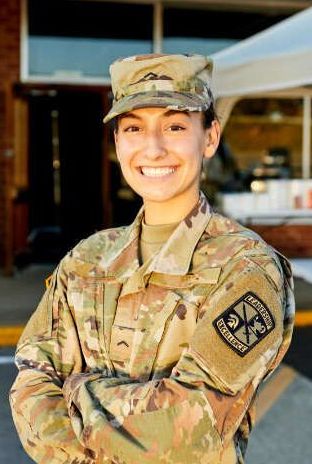
Online Discounts
At Liberty University, we believe everyone should have an equal opportunity to pursue higher education, and it's our job to keep private education affordable. Explore the many ways a Liberty education can be an affordable one.
For online students

Academic Excellence
Liberty University is institutionally accredited by the Southern Association of Colleges and Schools Commission on Colleges, and certain programs have earned additional field-specific accreditation as well.

ONLINE MASTER OF BUSINESS ADMINISTRATION
Request Information
Ready to learn more about our program?
No GMAT or GRE? Don’t Worry.
The GMAT or GRE is not required for admission, making it even easier to take your next giant leap. Learn more about our admission requirements .
Take the Next Giant Leap in Your Career
Earn your MBA 100% online from the Mitchell E. Daniels, Jr. School of Business at Purdue University, a leading STEM institution recognized for the persistent pursuit of innovation and excellence in business and technology.
Get ready to make your mark. Prepare for your next career success — online, on your terms.
Top 10 Most Innovative School
U.S. News & World Report named Purdue among the most innovative institutions in the nation for improvements in curriculum, faculty, students and technology. 1
#9 Best Online MBA in North America
In 2024, the Purdue Daniels school was ranked as one of the best online MBA programs in North America by CEO Magazine 2
Ranked and Respected
Earn a data- and technology-driven MBA from Purdue, a top 10 public university in the U.S. Purdue is also ranked #7 for Best Value, delivering both quality and affordability. 3
Prestigious Alumni Network
Purdue is ranked in the top 20 for most graduates working at leading Fortune 500 companies. 4 Join our international network of 600K+ alumni making an impact.
About the Purdue Online MBA
Develop the analytical, strategic and problem-solving expertise you need to lead teams and organizations. Learn how dynamic global environments are transforming modern business, and gain the management skills to tackle new challenges, drive change and inspire others. You'll experience an AACSB-accredited, quant-based curriculum that empowers you to ask the right questions while turning data into knowledge.
The Purdue Online MBA Offers:
- Balance: While you can complete your courses online when it’s convenient for you, our program provides 1-on-1 support from staff and faculty who host virtual sessions and office hours.
- Community: Learn from our esteemed faculty in a connected, collaborative online environment, where you still get the full, immersive Purdue student experience. Join Purdue’s worldwide network of students from 135+ countries.
- Growth and Support: Work closely with a certified Executive Coach from the Career Services Office who provides specialized support in achieving your career goals. You’ll also enjoy 1-on-1 guidance from a Student Success Coach who’s dedicated to your educational and career advancement.
Tuition and Fees
$60,000.00 tuition for Indiana residents, including fees 5
$62,102.40 tuition for non-Indiana residents, including fees 5
$1,000 nonrefundable deposit required 6
Tuition Reductions
Purdue offers tuition reductions and scholarships for the Daniels School Online MBA to select individuals, ensuring that career advancement and personal growth are even more within reach.
For more information, please contact us at [email protected] or 877-491-0224 .
Upcoming Start Dates
Fall Term 2024
Apply by: August 1
Spring Term 2025
Apply by: December 1
Summer Term 2025
Apply by: April 1
Fall Term 2025
Apply by: August 7
Purdue News, Information and Highlights
Stay up-to-date on all that’s happening at Purdue University.
In the News
- Purdue Recognized as a Top Producer of Fulbright U.S. Scholars
- Purdue’s Daniels School Is Shaping the Future of Business Education
- Purdue Research: The Effect Airbnb Bans Have on Rental Markets
- Former World Bank President to Join Purdue University and Its Daniels School of Business
- Purdue University Receives $100 Million Commitment from Lilly Endowment
- Excellence in Economics: Three Daniels School Faculty Among Exeter Prize Finalists
- Purdue Offers Online MBAs in These 4 High-Demand, High-Paying Industries
Information and Events
- Learn More About the Mitchell E. Daniels School of Business
- Access the Purdue Business Journal
- Check out Daniels School of Business Events
About the Mitchell E. Daniels, Jr. School of Business
Part of a leading stem university.
Purdue’s Mitchell E. Daniels, Jr. School of Business is part of one of the world’s preeminent engineering, science and technology universities. Our graduates are immediately prepared to contribute and possess the leadership skills to advance their careers, initiate progress and innovation in their fields, and build a better world.
Respected Internationally
The Mitchell E. Daniels, Jr. School of Business' faculty , staff, students and alumni push the boundaries of knowledge and together solve the world’s most complex problems every day.
A “Brand That Matters”
For the second year in a row, Purdue was named as one of Fast Company’s “Brands That Matter,” a list honoring organizations for cultural relevance, social impact and clear, authentic communication. Purdue is proud to be the sole university and one of only 13 two-time honorees to join internationally recognized brands like Nike, Salesforce.org, Fender and other influential organizations who made the 2022 list. Come experience the Boilermaker brand of business !
What Our Students Say
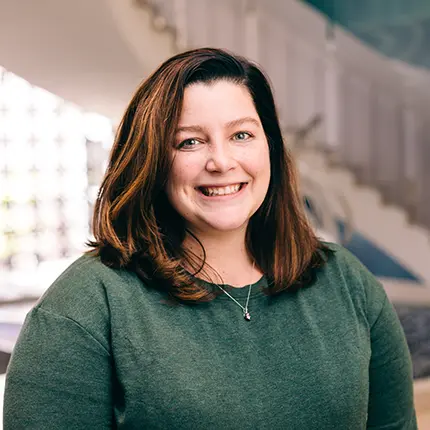
"My Online MBA classes have immediately paid off in my day-to-day. It's been awesome to see things I learn in my coursework get put to use at work."
Meredith Simmons Purdue University Online MBA Graduate, 2022

"The Online MBA program offers group work in almost every course, which is where you get the opportunity to learn from your peers and learn about other roles or business industries that are out there."
Amanda Farrer Purdue University Online MBA Graduate, 2022

"What stood out to me about the program was the flexibility. I was working in a position where I was traveling a lot, and since the program is online, I could study from anywhere in the world."
Christian Coakley Purdue University Online MBA Student, 2023
Application Requirements
To be eligible for admission to this program, the following are recommended:
- At least 24 months of work experience
- The equivalent of a U.S. four-year bachelor’s degree
- A minimum GPA of 3.0
Application review emphasizes your work experience, prior undergraduate academic record and professional training. To be considered for the Purdue Online MBA program, you may be asked to complete an interview with the program manager, and you will be required to submit all the items below:
- Academic Statement of Purpose introducing yourself to the Admissions Committee ( view full details )
- Two letters of recommendation
- Personal History Statement ( view full details )
- Professional resume with education, work experience and training
- Official transcripts for every higher education institution attended. Please note: All transcripts and/or academic documents uploaded by the applicant to the online application system are considered unofficial. Please order your transcripts to be sent directly from your institution to the Purdue University Graduate School at [email protected] .
- Interview feedback
The Online MBA is a rigorous program that requires quantitative aptitude. The Daniels School's online programs admissions team will look for evidence of this in your application via previous coursework. If you feel that you do not have sufficient evidence in your previous coursework to demonstrate this aptitude, you may want to consider submitting a GMAT or GRE score to enhance your application. The GMAT or GRE is not required for admission to the online MBA.
Online Application
When completing your application for the Purdue master of business administration online program, select the following:
- Graduate major: Management (MBA)
- An area of interest
- Degree objective: Master of Business Administration (MBA)
- Course delivery method: Distance (online or off-campus location)
- Fall 2024 Term: August 19, 2024 (application deadline – August 1, 2024)
- Spring 2025 Term: January 13, 2025 (application deadline – December 1, 2024)
Transcript Information
- All applicants must upload to the online application transcript(s) and/or academic document(s) for every institution of higher education attended. If a transcript and diploma/degree certificate is not in English, an English translation (certified by the college or university that issued it) must be uploaded.
- The uploaded transcript and/or academic document must be from the official version of the document. An official transcript bears the original signature of the registrar and/or the original seal of the issuing institution.
- If personal identifying information such as a student identification number or Social Security number appear on the document, REMOVE THIS INFORMATION from your electronic version of your document or mark out the information in black ink before scanning your document.
All transcripts and/or academic documents uploaded by the applicant to the online application system are considered unofficial. Please order your transcripts to be sent directly from your institution to the Purdue University Graduate School at [email protected] . The Purdue University Graduate School reserves the right to require official transcripts and/or academic documents at any time during the admissions process.
Letters of Recommendation
- Two online recommendations are required for your application to be received. No more than two recommendations are needed.
- Recommendations will only be accepted through the online application (no paper recommendations will be accepted).
- We strongly urge (but do not require) that one recommendation be from your direct supervisor.
- Recommendations from friends, family members, acquaintances and other sources unable to evaluate professional or academic qualifications for MBA study are not acceptable.
- We require that recommenders submit the recommendations online (instructions to do so are provided within the online application).
Please note that we will not receive your application until at least two registered recommenders have submitted recommendations through the online application.
Required Essays
Academic statement of purpose (2-pages max).
The Academic Statement of Purpose is an opportunity for you to introduce yourself to the Admissions Committee. In your statement, you should share information about your academic background and training, academic objectives and interests, and why you are a good match for the program to which you are applying.
View more information about the application statement .
Personal History Statement
Your Personal History Statement helps reviewers learn more about you and your potential as a graduate student. Your statement may include relevant information about your leadership roles, community services projects, participation in diverse teams, as well as any barriers you’ve had to overcome to attend graduate school.
View details about the personal history requirements .
Personalize Your Degree Plan
It's Your MBA on Your Terms
Design your own plan of study to fit your individual needs and goals. Graduate in as few as two years, or lighten your course load and take more time. For busy adults balancing work and school, it’s important to be able to slow down when you need to — or speed up when life allows.
You can also customize your MBA by choosing from a wide range of courses that best align to your career plans. Want to further hone your expertise? Add a specialization in one of ten high-demand areas, such as Business Analytics, Machine Learning and AI, and Digital Marketing & Analytics.
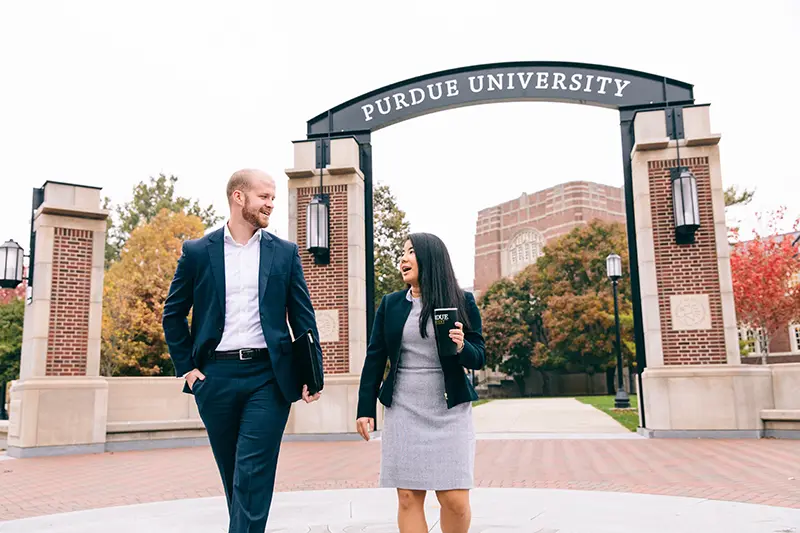
Additional Daniels School Master’s Programs
Whether you are an experienced working professional or looking to launch your career, Daniels offers a variety of graduate business options designed to suit your background and goals:
- Master of Business Programs
- Online Programs
- Specialized Master's Programs
- Certificate and Professional Development Programs
As Few as 2 Years
Program Length
3 Times a Year
Start Dates
100% Online
Learning Format
Ready to Take Your Next Giant Leap?
Notes and conditions - please read.
1 Innovative Institutions: Source: U.S. News & World Report, on the internet at https://www.usnews.com/best-colleges/rankings/national-universities/innovative
2 #9 Best Online MBA in North America: Source: https://ceo-mag.com/wp-content/uploads/2024/04/2024-Global-MBA-Rankings-All-Categories-.pdf
3 Top 10 Public University: The Wall Street Journal/Times Higher Education, on the internet at https://www.timeshighereducation.com/student/best-universities/best-public-universities-united-states ; #7 for Value: The Wall Street Journal/Times Higher Education, on the internet at https://www.wsj.com/articles/college-rankings-list-2022-11632246093
4 Graduates at Fortune 500 Companies: Source: Forbes, on the internet at https://www.forbes.com/sites/michaeltnietzel/2021/09/04/the-universities-with-the-most-graduates-working-at-top-fortune-500-companies/
5 Tuition rate includes fees. Tuition and fees are subject to increase based on approval by the Purdue University Board of Trustees. Financial aid is available to those who qualify.
6 Deposit is applied toward the first semester's tuition upon enrollment.

IMAGES
VIDEO
COMMENTS
Nova Southeastern University offers a PhD in Marine Biology and Oceanography. Applications are accepted on a rolling basis for fall, spring, and summer terms. The degree can be earned on campus or online. Students are usually able to finish within 5 years. Graduates have gone on to careers in the government and academia.
Online PhD in Biology Programs. PhDs can be beneficial for a multitude of careers. Since biology is the study of life, this encompasses many areas for exploration. Generally, PhD programs in biology are separated into three main subfields: Cellular and molecular biology. Ecology, behavior, and evolution. Neurobiology.
PhD in biology online programs are a fantastic option for ambitious professionals who want to upscale their education. However, as there are so many accredited schools out there, it's hard to find a program tailor-made to your preferences. This is why we've created a list of the 7 best biology PhD degree programs online in the U.S.
Researchers in the field of bioinformatics and computational biology collect, store, analyze, and present complex biological data using high-performance computing. Through this work, critical contributions are made to disease detection, drug design, forensics, agriculture, and environmental sciences. This research-oriented program trains a new ...
A PhD in Biology Online is a research-focused, terminal degree in the biological sciences where courses are taken anywhere with internet access. Usually, programs cover key biological sciences and then give students an option to choose a specific area for in-depth study. The areas of emphasis might include biochemistry, cell and molecular ...
The Biology Ph.D. program is part of the larger Biosciences community at Stanford, which includes doctorate programs in the basic science departments at Stanford Medical School. There are two tracks within the Biology Ph.D. program: Cell, Molecular and Organismal Biology. Ecology and Evolution. (Previously a part of the Department of Biology ...
Dr. Sage studied biology at the École Normale Supérieure in Paris and did his PhD at the University of Nice and post-doctoral training at MIT. He is currently the Elaine and John Chambers Professor in Pediatric Cancer and a Professor of Genetics at Stanford University where he serves as the co-Director of the Cancer Biology PhD program.
The Biochemistry and Molecular Biology PhD program prepares students for a range of biomedical and health sciences careers, including in academia, industry, policy, and beyond. Visit the Graduate Employment Outcomes Dashboard to learn about Bloomberg School graduates' employment status, sector, and salaries. Sample Careers. Research Scientist ...
The Department of Molecular & Cell Biology at the University of California, Berkeley offers a Ph.D. program focused on the molecular mechanisms inherent to life. This program integrates research with a modern training curricula, teaching, and career mentorship. Our Department is highly interdisciplinary - comprising the Divisions of Cell Biology, Development & Physiology,
The PhD program in Biology is a research-intensive program that also has a strong focus on teaching, designed to produce top scientists and educators with a broad base of knowledge to tackle the most important biological problems of today. This is accomplished through research training, graduate-level courses, seminars, and teaching experience.
Biology, Doctor of Philosophy. To receive a Doctor of Philosophy Degree (PhD) at Northern Arizona University, you must complete a planned group of courses, from one or more disciplines, ranging from at least 60 - 109 units of graduate-level courses. Most plans require research, a dissertation, and comprehensive exams.
In 'PhD'. The School of Biosciences now offers the option of a PhD by Distance Learning which means that for some projects you may be able to register for a PhD at the University of Birmingham but undertake the majority of the work for your thesis in your home country. Tom Hampton of the USA recently completed his PhD by Distance Learning.
Ph.D. Program. The Department of Biology introduces graduate students to diverse fields of biological science, and provides them with expert guidance to excel in research. The department is invested in training students to become excellent scientists, researchers, science communicators, and instructors. We are a diverse and global community ...
The PhD in Biology is a research degree requiring graduate-level coursework, completion of a dissertation, and two semesters of participation in teaching (usually as a teaching fellow in laboratory or discussion sections of lecture courses led by Biology faculty). For most students, obtaining this degree typically involves five or more years of ...
The PhD program in biology offers individualized courses of study tailored to students' interests that include laboratory, field and theoretical work. Flexibility in the program is achieved by requiring only one core class, which is a choice between two topics that cover the breadth of the research directions in this program.
The Executive Doctor of Philosophy (Ph.D.) degree program in Biochemistry and Molecular Biology is targeted toward full-time professionals working in industry or other research laboratories who are involved in research at their workplace but do not have a Ph.D. These individuals do not need to give up their jobs to enroll in this Ph.D. program ...
The PhD in Molecular Biology, Cell Biology & Biochemistry (MCBB) is designed to build a solid foundation in related fields in the molecular biosciences through coursework and seminars, and to develop the skills for achieving cutting-edge research accomplishments. The program is based on an interdisciplinary environment and a breadth of ...
The Biology PhD curriculum requires 36 credit hours, including 15 hours of graduate seminar courses. Some of these courses include. Analytical Biotechnology , Cellular and Molecular Neuroscience , Contemporary Biology , General Biochemistry, and. Evolutionary Genetics Genomics . Learn more about required courses for the Biology PhD.
Graduate Admissions. Through our well-rounded PhD in Biology and Biotechnology, you will delve into immersive research in biology and biotechnology while also sharpening your professional and pedagogical knowledge and skills. You will take core courses covering professional ethics, grant writing, and experimental design, and hone your ...
Department of Biology, Krieger School of Arts and Sciences . The Hopkins Biology Graduate Program, founded in 1876, is the oldest Biology graduate school in the country. People like Thomas Morgan, E. B. Wilson, Edwin Conklin and Ross Harrison, were part of the initial graduate classes when the program was first founded.
Doctorate of Biological Education. Contact: Dr. Lauryn Benedict, 970-351-3364 (telephone), ... Become a multifaceted scholar and educator with a solid background in biology and teaching of biology by working closely with our faculty to develop and advance your skills in teaching and research. This degree program is offered at the main UNC ...
Academic Freedom to Discover Your PurposeOpen Curriculum Design at Atlantic International University. Embarking on a Doctorate in Biology, specifically the PhD program, signifies a transformative journey toward becoming a versatile scholar and an autonomous researcher. At its core, this program aims to cultivate a cohort of individuals equipped ...
Bioinformatics PhD. Become an expert in the computational analysis of biological data with the Bioinformatics PhD in Temple's College of Science and Technology. This full-time, 36-credit-hour doctoral program integrates biology, chemistry, computer science, mathematics and statistics in a research-focused curriculum.
The interdisciplinary, research-oriented Molecular Cell Biology & Genetics program offers both MS and PhD degrees. The program for graduate students interested in biomedical problems provides a broad education-training program that crosses disciplinary boundaries.
Harvard Kenneth C. Griffin Graduate School of Arts and Sciences Harvard Graduate School of Design ... Students enrolled in the Master of Liberal Arts program in Biology will learn how to apply critical thinking to real-world scenarios in the life sciences while exploring cutting-edge research and theory. Students gain deeper insight into a ...
Benefits of Pursuing Your Doctorate in English Online with Liberty University. As a leader in distance education since 1985, we understand what it takes to create a flexible and affordable ...
Hybrid and Online Options. Because of the importance of personal interaction in supervising clinical hours, there are no 100% online fully accredited psychology Ph.D. programs to date. However, hybrid programs let you finish some of your work online — typically the classes that cover theory, methodology, and research techniques.
A "Brand That Matters" For the second year in a row, Purdue was named as one of Fast Company's "Brands That Matter," a list honoring organizations for cultural relevance, social impact and clear, authentic communication. Purdue is proud to be the sole university and one of only 13 two-time honorees to join internationally recognized brands like Nike, Salesforce.org, Fender and other ...